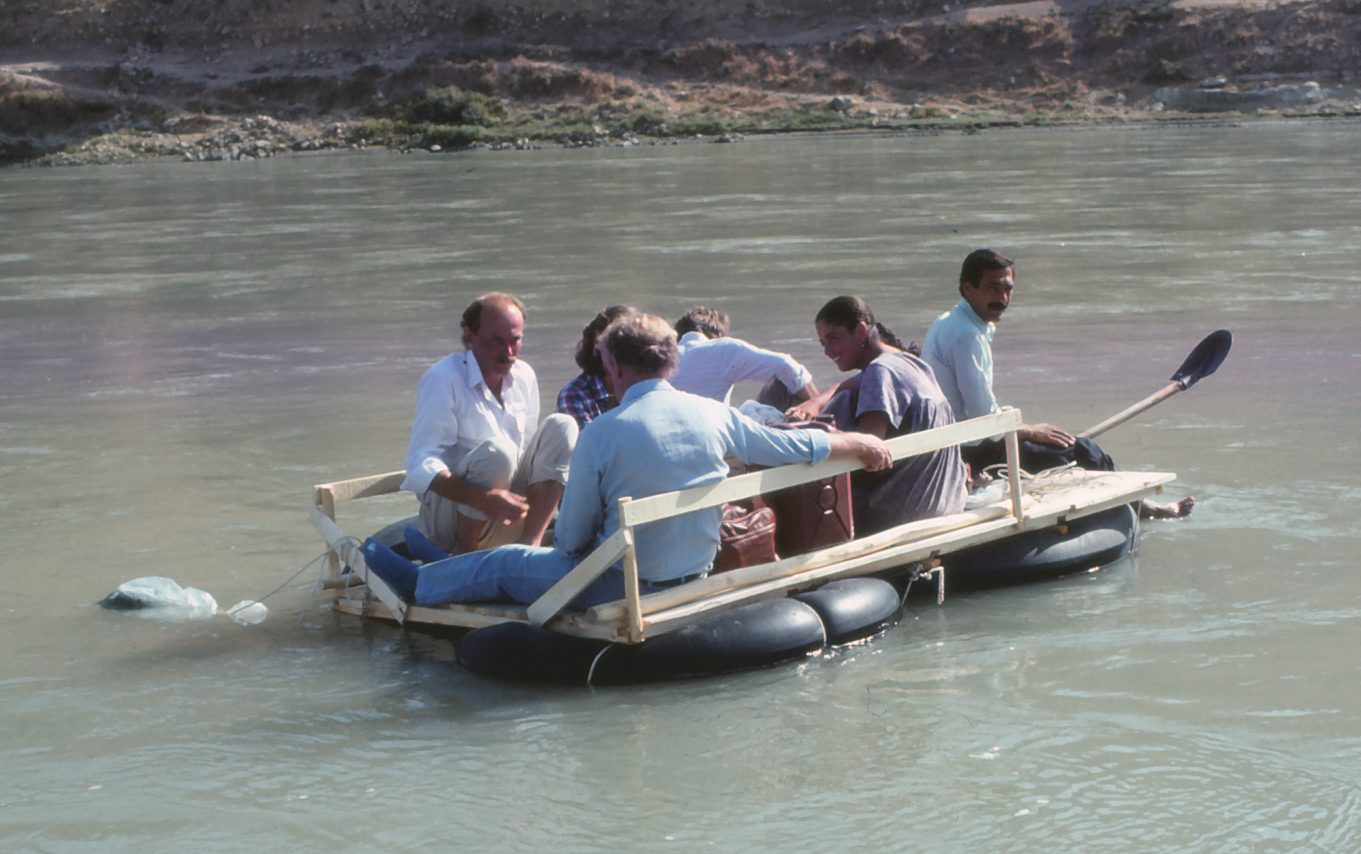
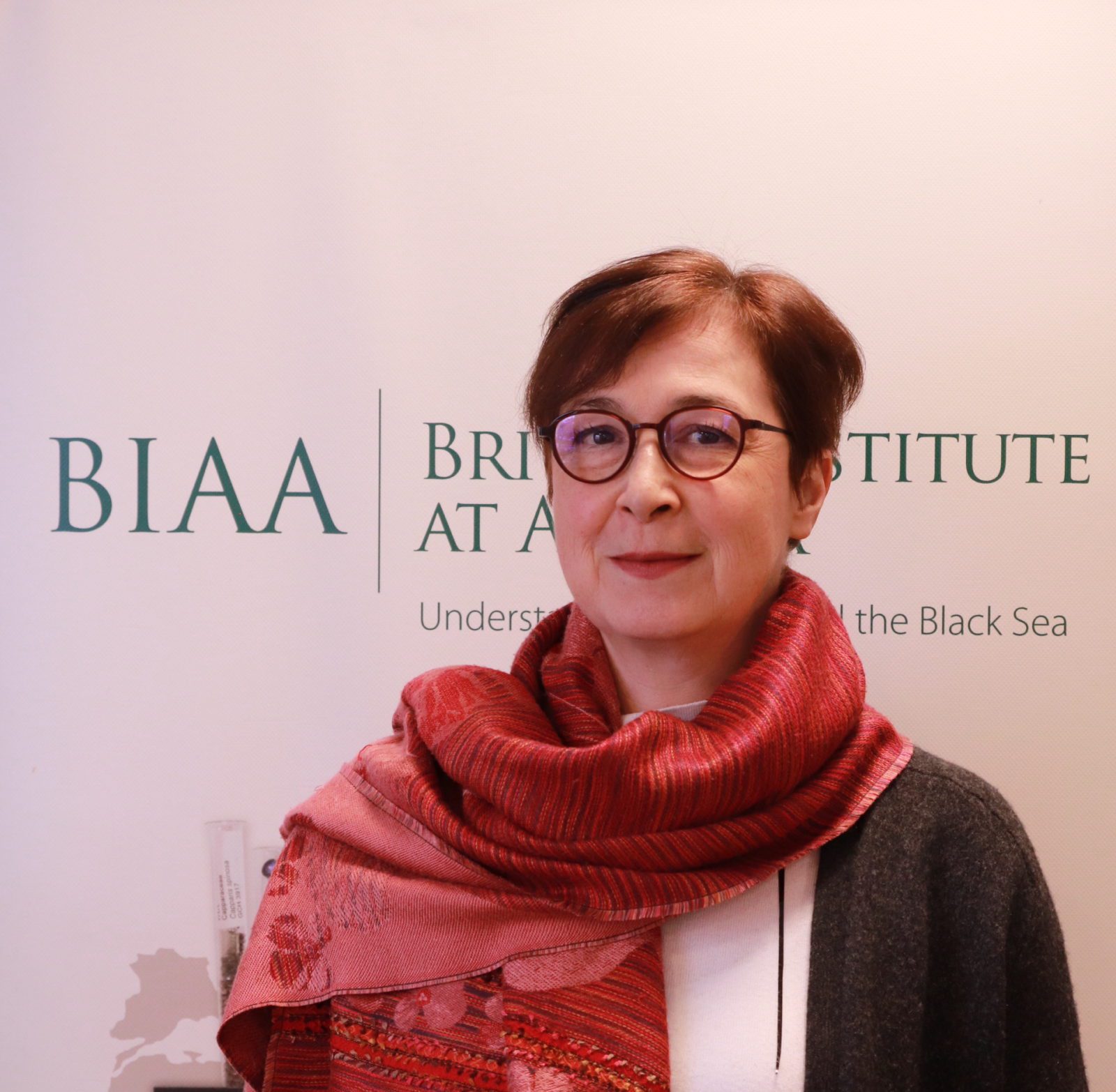
Lutgarde Vandeput is a classical archaeologist, educated at the University of Leuven in Belgium. She has done fieldwork in Turkey since she was a student. She participated in the excavations at Sagalassos and also in the Pisidia Survey Project, which she then directed between 1998 and 2012. She was involved in the Aspendos Archaeological Project until 2016. Lutgarde specialises in the study of monumental architecture and urban development, as well as in survey archaeology. She has been on the faculty of the Universities of Leuven (Belgium) and Cologne (Germany), and has been the Director of the BIAA since 2006.
Fields of Expertise: Classical Archaeology; Ancient Roads and Routes; Cultural Heritage Management
Further information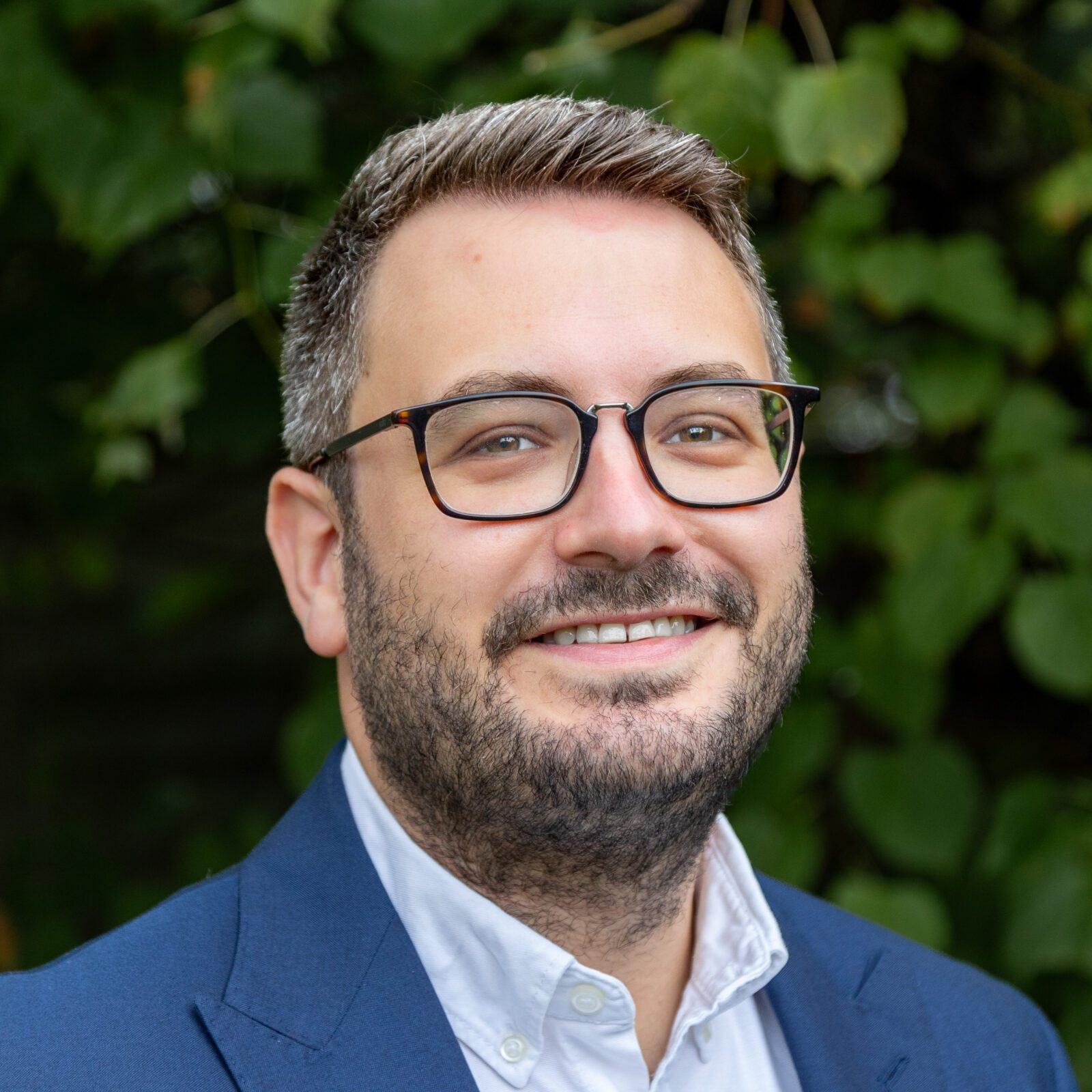
Peter Cherry received his PhD in Comparative Literature from the University of Edinburgh in 2017. He joined the BIAA in 2017-18 as a Postdoctoral Fellow. He was Assistant Professor of Comparative and World Literature at Bilkent University from 2018-2021, Visiting Lecturer at the University of West London from 2021-22, and worked as Communications and External Relations Officer for an NGO in Moldova from 2022-2023 before taking up the post of Assistant Director. His first book, Muslim Masculinities in Literature and Film: Transcultural Identity and Migration in Britain, was published by IB Tauris in 2021. He has also published on Turkish literature and cinema.
Fields of Expertise: Turkish Literature; Comparative Literature; Gender Studies
Further information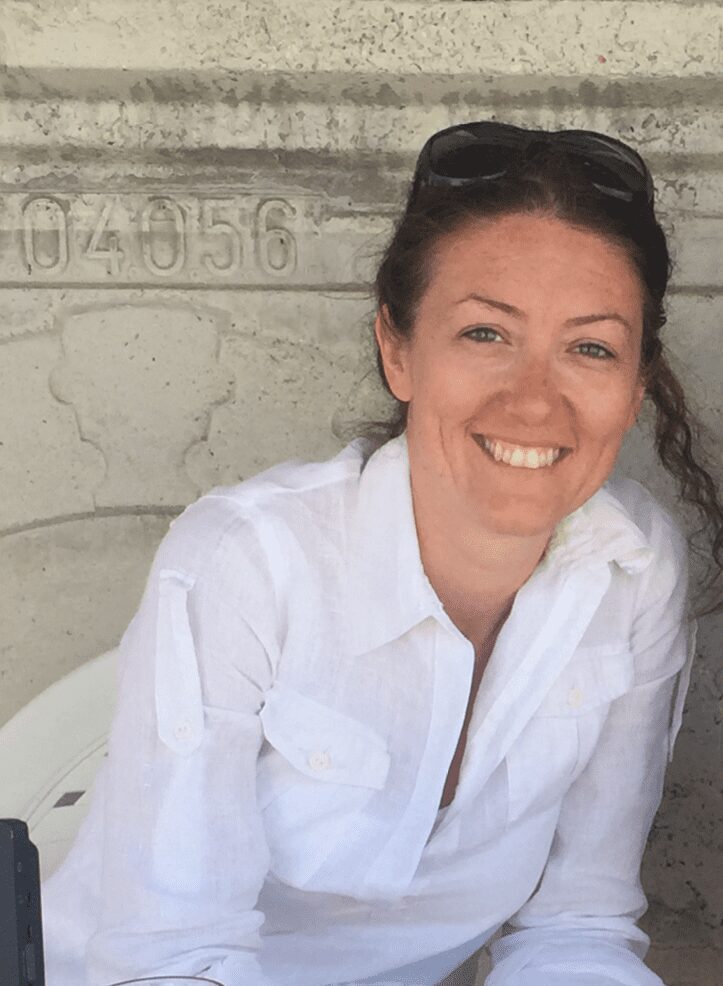
Işılay Gürsu received her PhD in Cultural Heritage Management (CHM) from IMT Institute for Advanced Studies, Lucca, Italy in 2013. Prior to her PhD, she worked at the Istanbul Archaeological Museums Development Project for a year. She joined the BIAA in 2013 as the CHM Postdoctoral Researcher. She has worked on improving the presentation and interpretation of the ancient site of Aspendos and the ancient region of Pisidia, culminating in the Pisidia Heritage Trail, a 350km long trekking route connecting archaeological sites in the region.
Fields of Expertise: Cultural Heritage Management, Public Archaeology, Tourism Studies
Further information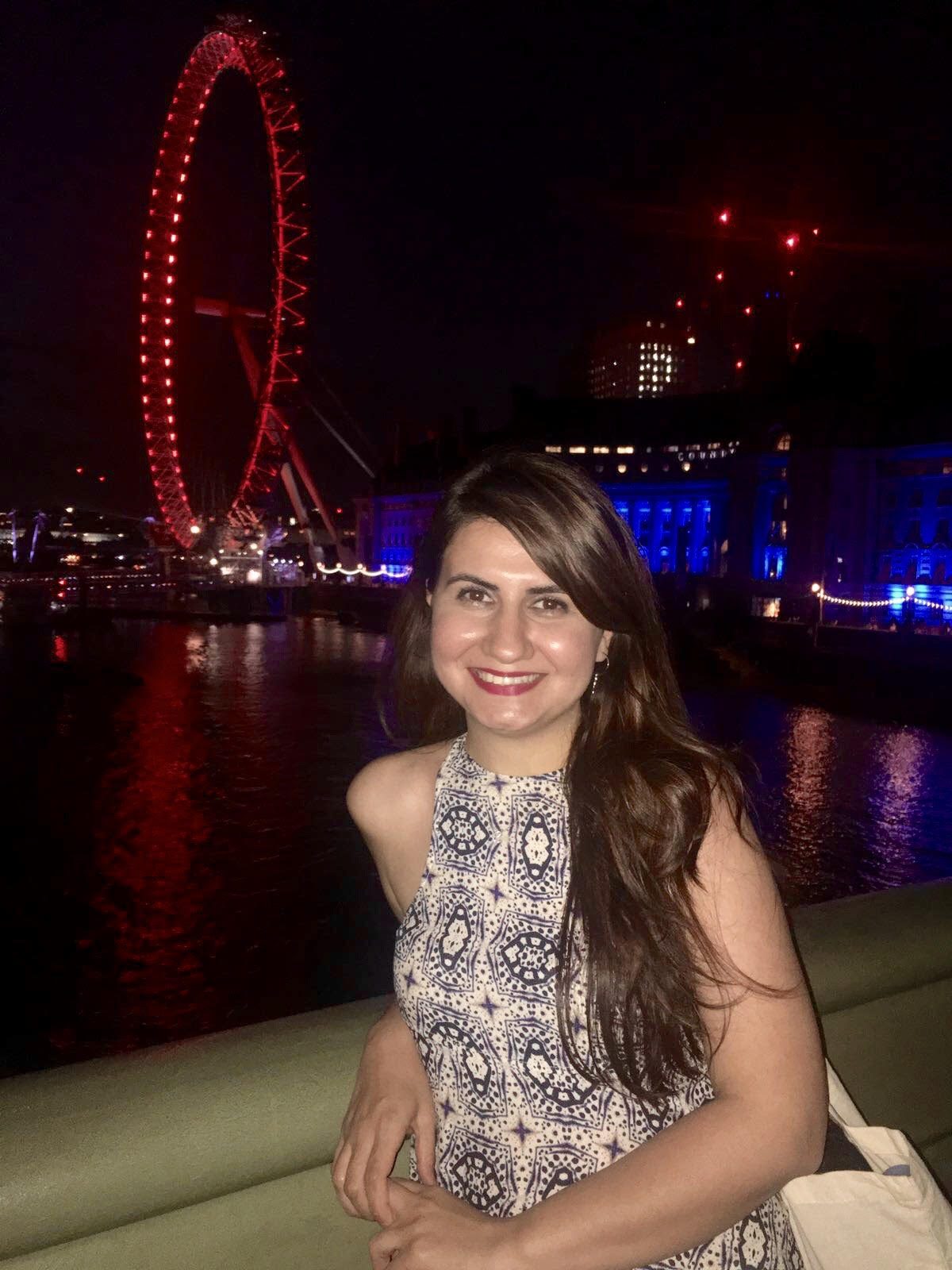
Özlem Sarıtaş is a zooarchaeologist working mainly in Neolithic Anatolia and Jordan, including sites Boncuklu Höyük, Pınarbaşı, Mendiktepe and Wisad Pools. She was also assistant co-director of Göbeklitepe and Karahantepe excavations. She completed her D.Phil. between the University of Liverpool and University College London (UCL) in 2023, where she researched the zooarchaeological evidence for human and animal interactions in central Anatolia. Özlem is currently working on the Development of Hunting and Early Caprine and Cattle Herding Strategies in Neolithic Central Anatolia: a case study of 8th Millennium cal BC site Canhasan III. She is also developing her knowledge of historic biodiversity of animals in Anatolia and beginning research into fish bones. She employs zooarchaeological analysis methods to establish the origin of the earliest morphologically domesticated caprines, and possibly cattle, in central Anatolia. She has also been a guest researcher at the University of Tokyo and will be a guest researcher at the Royal Belgian Institute of Natural Sciences in the summer of 2024.
Fields of Expertise: Domestication, Management, Human-Animal Relationship, Neolithic, Anatolia, Southwest Asia.
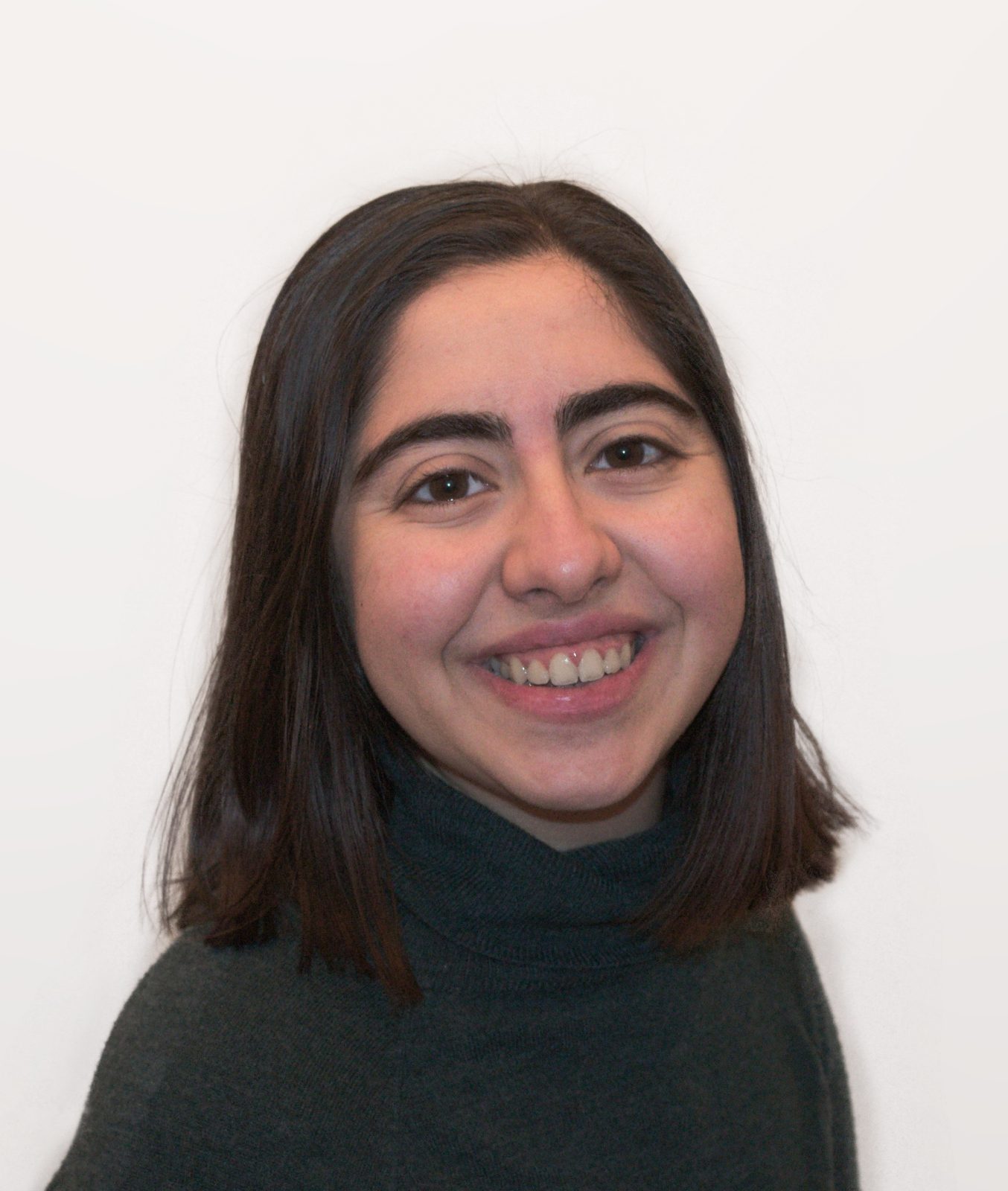
Burcu Akşahin graduated from Durham University with a B.A. in Ancient History and Archaeology in 2019 and an M.A. in Classical Archaeology in 2020. She joined the BIAA as Research Scholar in October 2021. Her primary academic interests include Hellenistic South-Western Anatolia, particularly the history and chronology of urban development in Hellenistic Lycia as perceived via material and visual culture. As part of her pre-doctoral research, she is working on compiling an overview of Hellenistic Lycian pottery. Her true passion lies in fieldwork, however, which has taken her on wild adventures around remote villages of Romania, Italy, and Turkey since 2016.
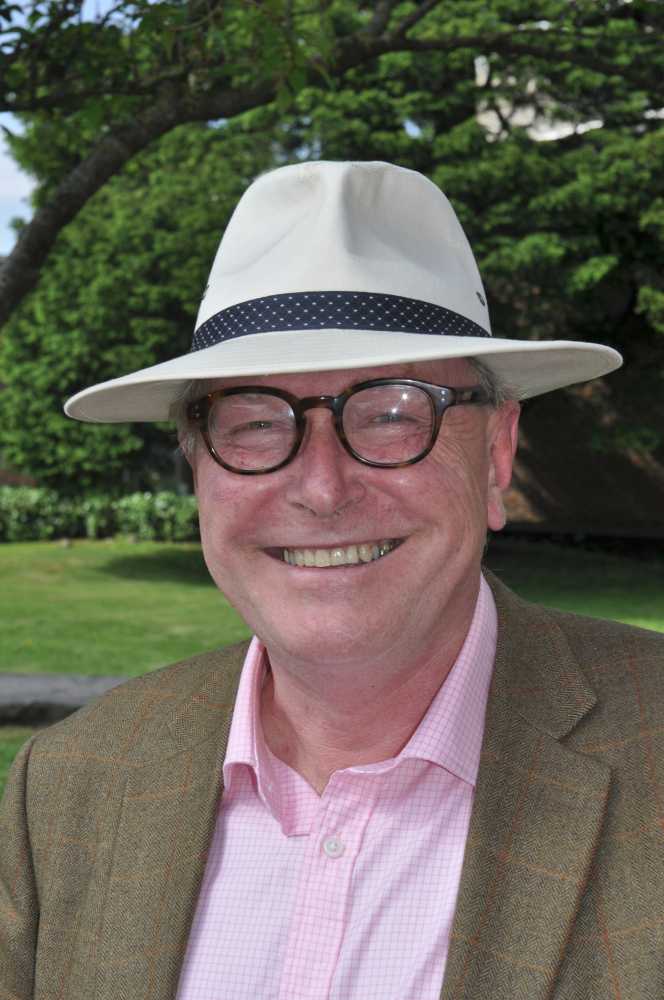
Stuart Blaylock holds a BA in Ancient History and Archaeology from the University of Birmingham (1978) and a PhD in Near Eastern Archaeology from the University of Swansea (2005). He came to Turkey in 1980 to work on excavations at Tille Höyük, which he directed from 1984–1990. He subsequently conducted post-excavation and museum projects and published the final report on Tille’s Iron Age levels. More recently he has co-directed rescue excavations at Gre Amer with Gül Pulhan (2009–2019) and was appointed as a BIAA Honorary Research Fellow in 2020. Stuart has also pursued a career as a consultant archaeologist and architectural historian, publishing widely in both fields.
Fields of Expertise: Near Eastern Archaeology, Pottery and Artefact Studies, Architectural History and Buildings Archaeology.
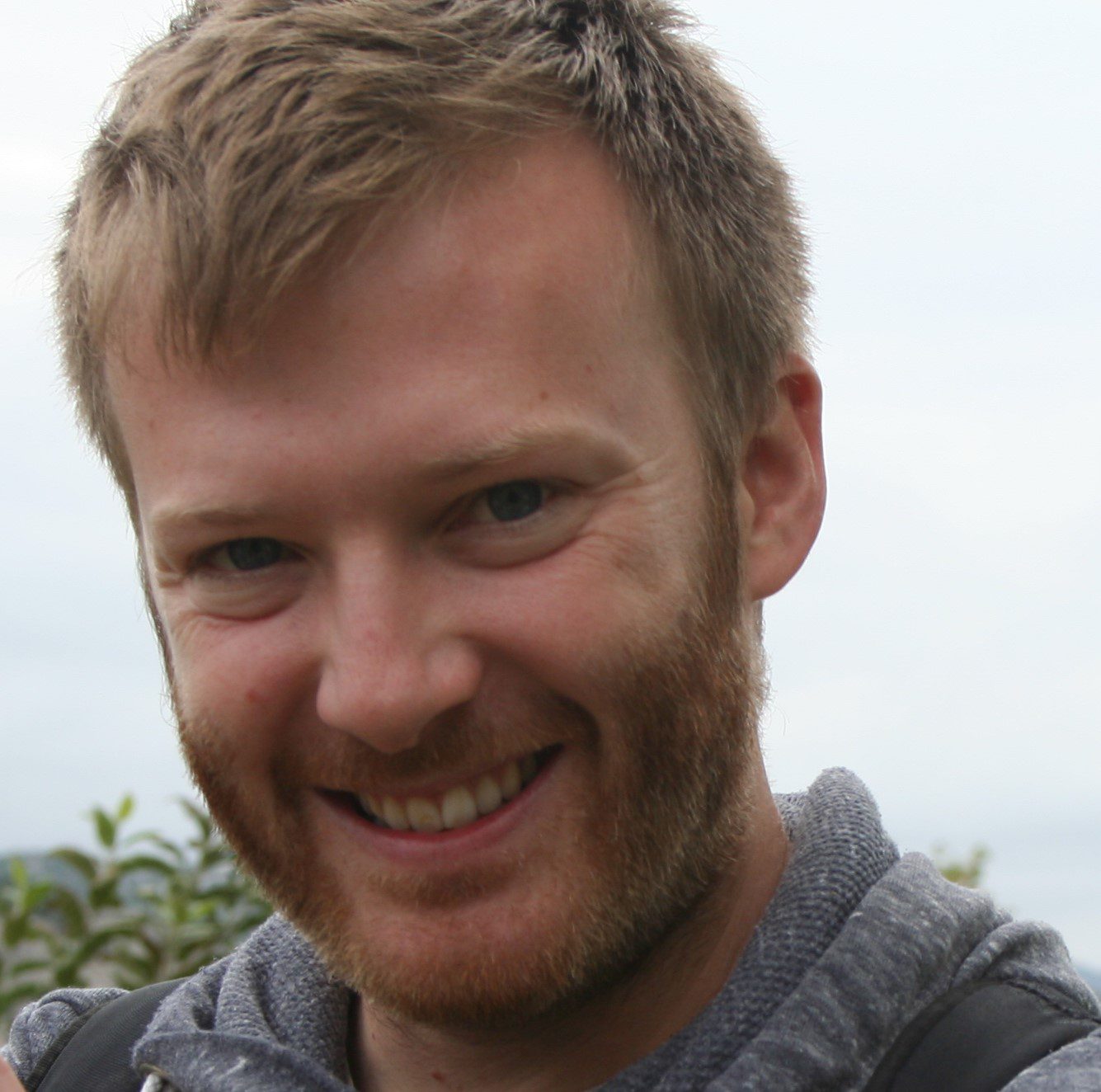
Michele Massa, who received his PhD degree from University College London in 2016, is currently an Honorary Research Fellow of the BIAA. He has previously held an assistant professorship at Bilecik Şeyh Edebali University in Turkey from 2016-2018. He has been co-director of the Konya Regional Archaeological Survey Project since 2016. He is also director of the From Mines to Graves: metallurgy and metal exchange in north-western Anatolia between the Late Chalcolithic and the Late Bronze Age project in Kütahya. His primary area of interest is the prehistoric and early historic Eastern Mediterranean, particularly Anatolia.
Fields of Expertise: Archaeology, Study of Interaction, Landscape Archaeology, Process of Urbanization and State Formation, including warfare, long distance exchange networks, administration and elite behaviors.
Further information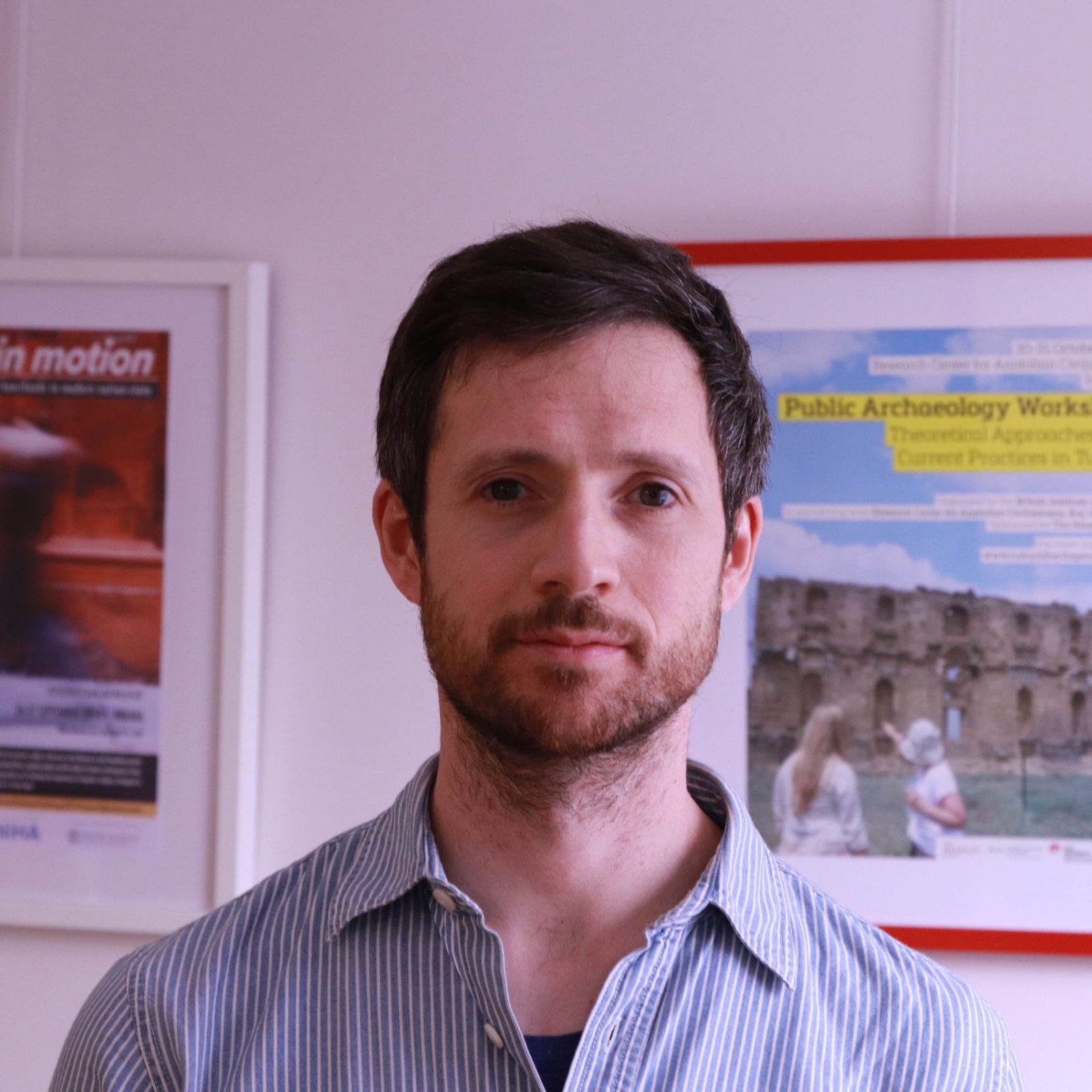
John McManus is a social anthropologist whose research looks at sport, migration, multiculturalism and popular culture in the Middle East, in particular Turkey and Qatar. He is the author of Inside Qatar: stories from one of the richest nations on earth (Icon Books, 2022) and Welcome to Hell? In Search of the Real Turkish Football (Weidenfeld & Nicolson, 2018), awarded runner-up in the 2019 British-Kuwaiti Friendship Society book prize. John holds a PhD from the University of Oxford and is a former BIAA Postdoctoral Fellow (2016-18). His writing has appeared in the Guardian, Washington Post, Financial Times and the BBC, as well as academic journals.
Fields of Expertise: Popular Culture, Contemporary Turkey, Anthropology of Sport, Diaspora Studies.
Further information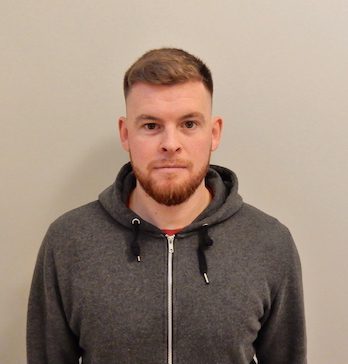
Benjamin Irvine, who received his PhD degree from the Freie Universität Berlin in 2017, is currently an Honorary Research Fellow of the BIAA. He was previously the 2018-20 BIAA Postdoctoral Research Fellow. Benjamin is a bioarchaeologist who specialises in utilising osteological and stable isotope analyses to examine the dietary habits, subsistence practices, and mobility patterns of populations in the Chalcolithic and Early Bronze Age periods of prehistoric Anatolia. His current research is focused on analysing human-environment interactions in prehistoric Anatolia and adjacent regions, particularly examining diachronic and regional patterns in dietary habits, subsistence practices, and agricultural strategies.
Fields of Expertise: Bioarchaeology, Physical Anthropology, Archaeology, Stable Isotope Analysis
Further information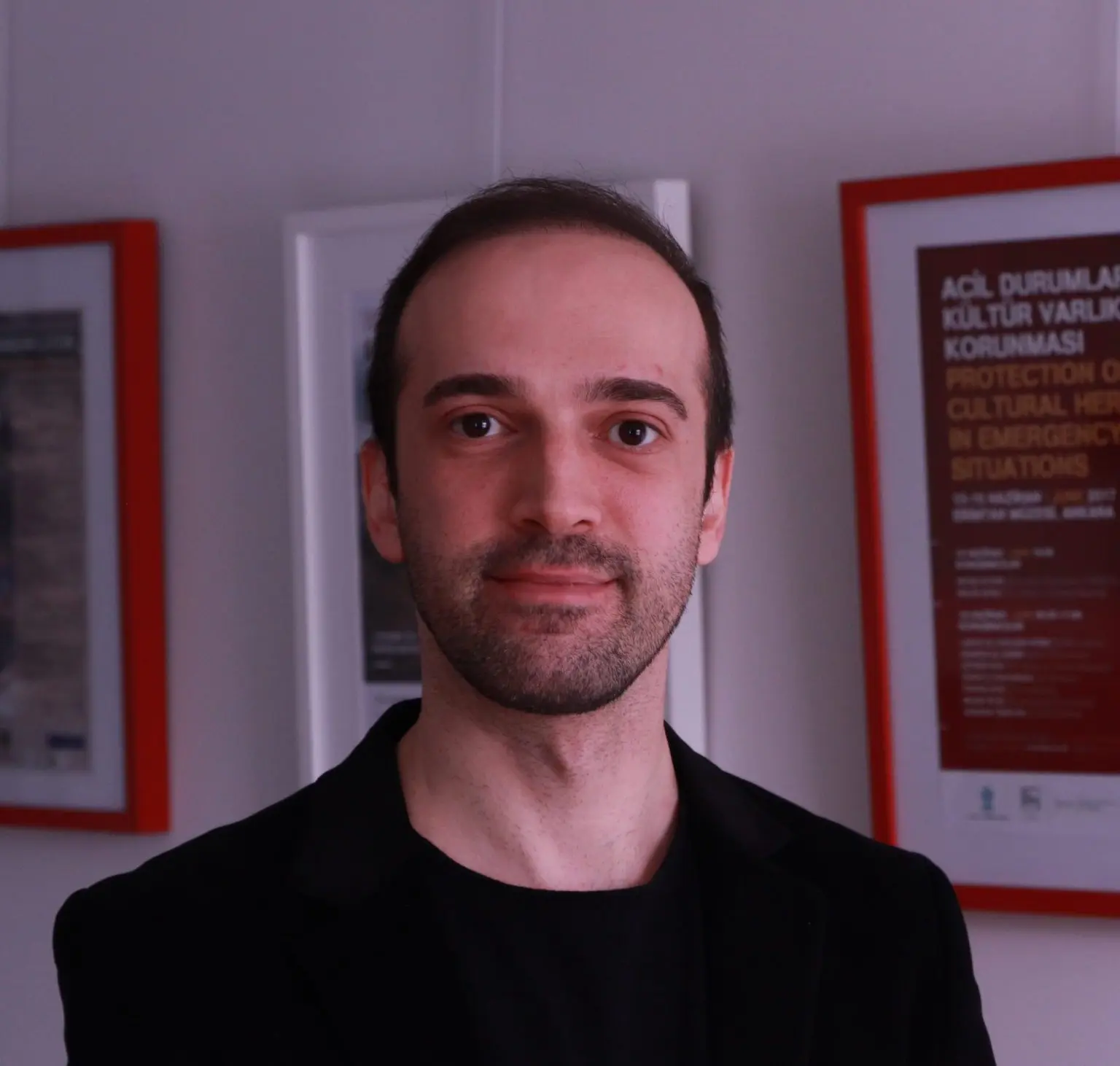
Ender Peker specialises in climate responsive urbanism; particularly the ways in which the built environment is co-produced by technical rules, regulations and actors. Ender holds a PhD from the University of Reading. His PhD research developed an urban design approach that integrates technical knowledge regarding climate sensitivity with social knowledge generated within and by local communities. He is currently working with water management stakeholders to better understand contemporary needs in İstanbul and explore how archaeological findings from the Water in Istanbul: Rising to the Challenge? project can inform solutions to current water-related challenges in the city.
Fields of Expertise: Climate Responsive Design, Urban Design, Socio-Technical Research
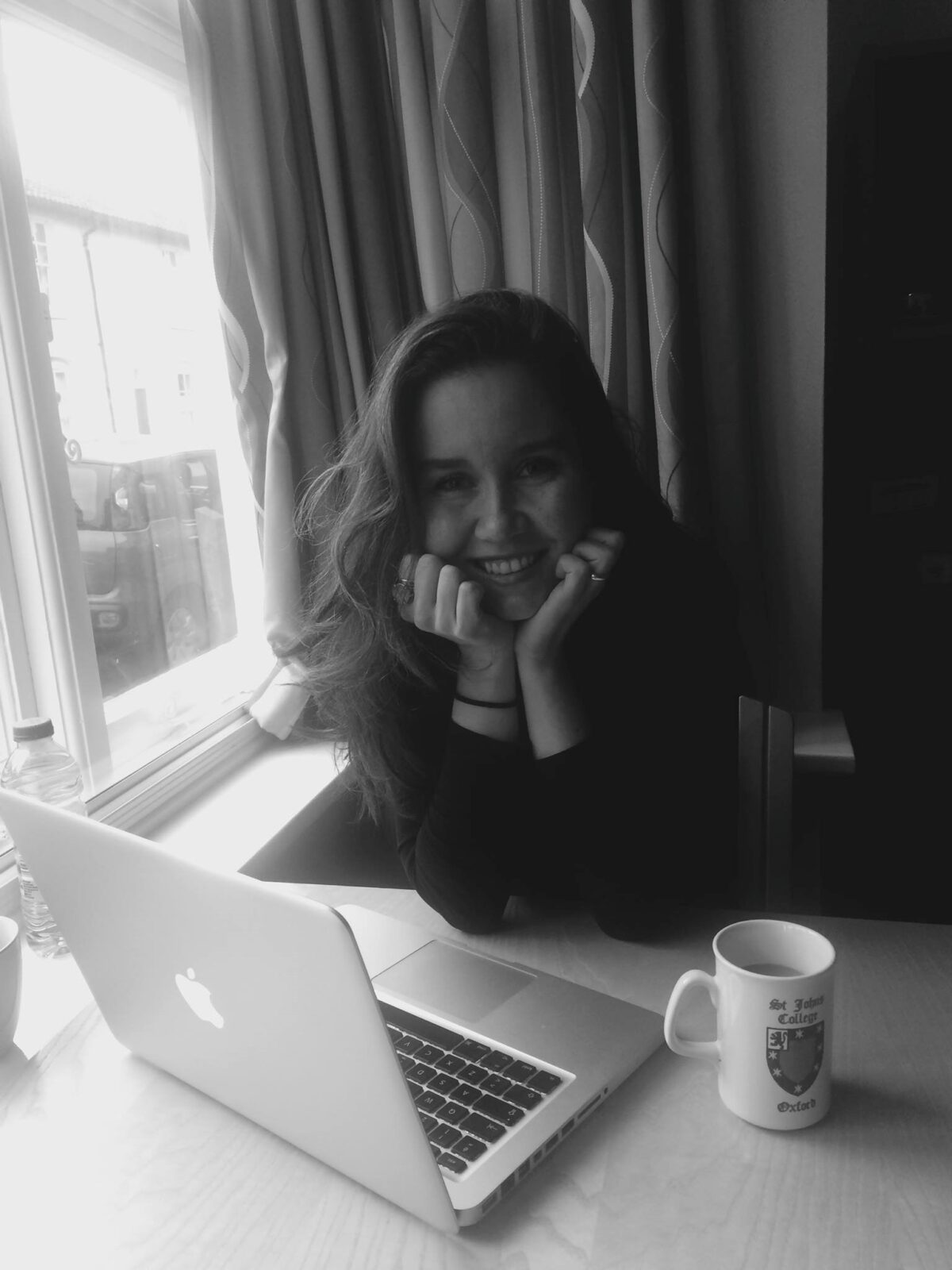
Gizem Tongo is art and cultural historian specialising in the history of the late Ottoman Empire. She holds a doctorate in Oriental Studies from University of Oxford, St John’s College, where she was a Lord Dulverton Scholar. Upon graduation, she held two postdoctoral positions, first at the University of Oxford (between 2017 and 2018), and later at the British Institute at Ankara (between 2018 and 2020). In addition to her academic research, she has also been involved in curating and writing material for exhibitions. Following her BIAA Postdoctoral Fellowship, she worked as a lecturer in the Architectural History program in Middle East Technical University. Currently, she is Assistant Professor in Art History at Hacettepe University.
Fields of Expertise: Late Ottoman and early Republic cultural history; Ottoman art and architecture; cultural history and memory of the First World War; gender and culture.
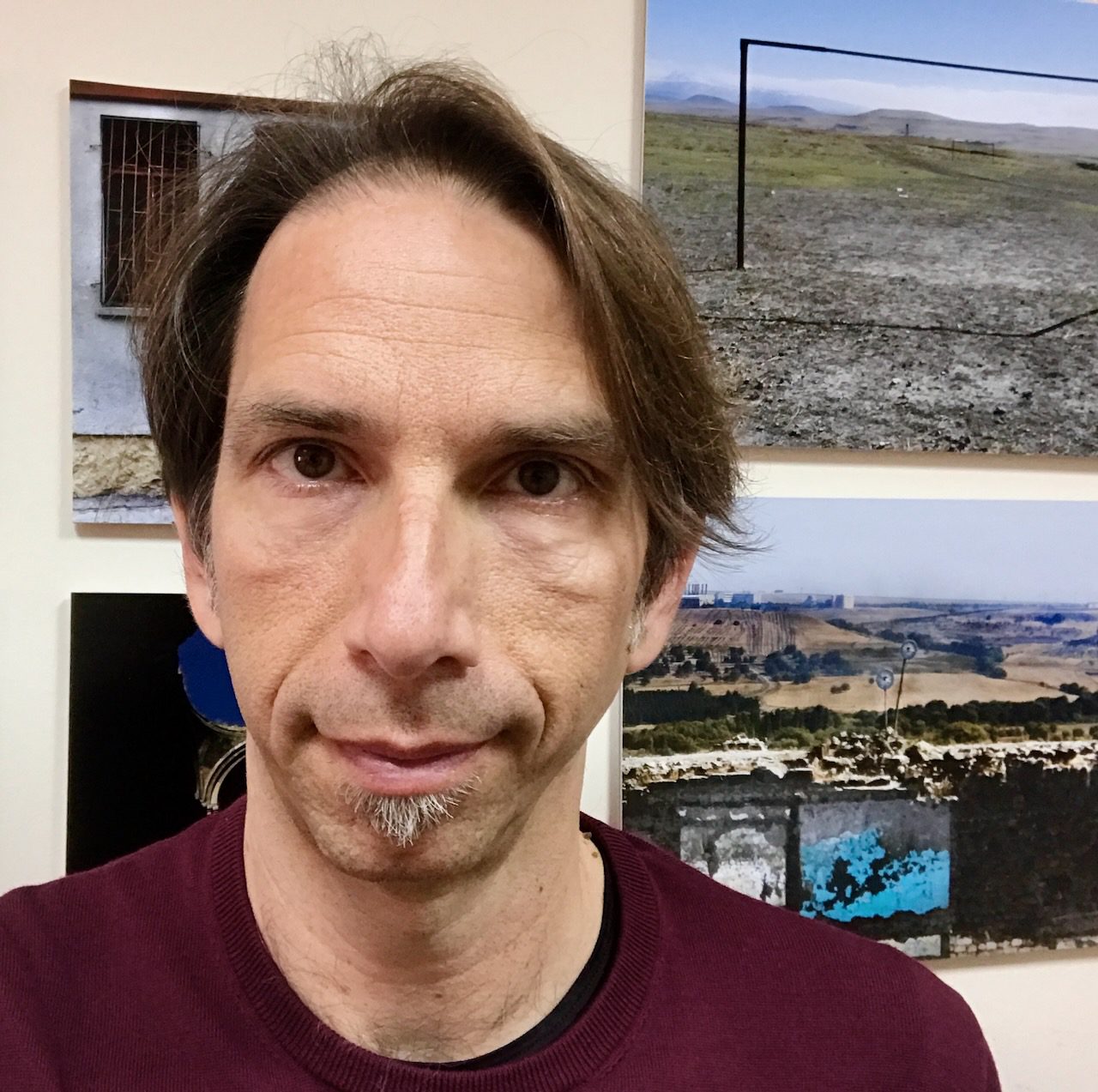
Leonidas Karakatsanis is Assistant Professor of Comparative Politics at the Department of Balkan, Slavic and Oriental Studies, University of Macedonia, Thessaloniki Greece and an Honorary Fellow of the BIAA. He holds a PhD in Ideology and Discourse Analysis from the University of Essex. He worked at the BIAA for seven years starting in 2012, initially as a postdoc / research fellow, before undertaking the post of the Assistant Director of the Institute between 2015-2019. He has taught at Universities in the UK, Greece, and Turkey. He has researched and published in the following fields of expertise.
Fields of Expertise: The politics of identity and reconciliation, peace and conflict transformation, nationalism, minority rights, immigration, civil society and the politics of resistance
Further information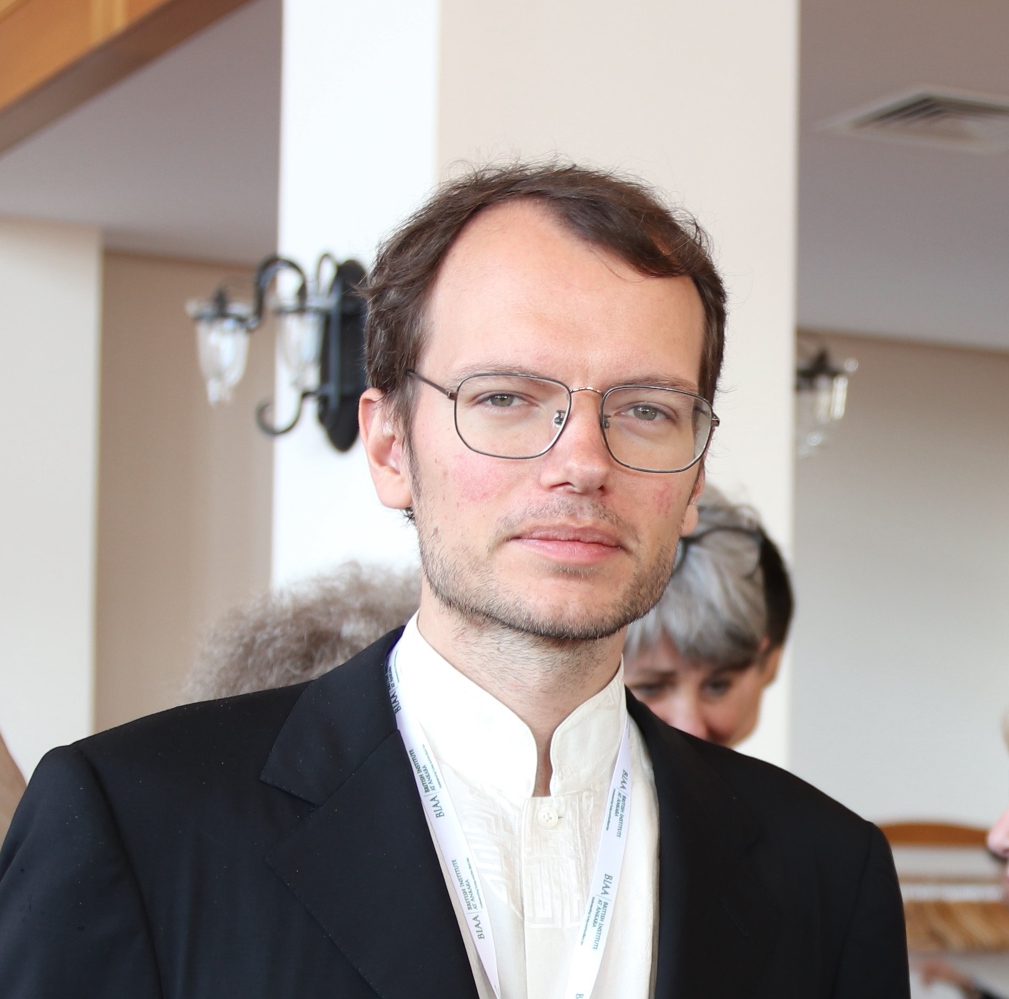
Daniel-Joseph MacArthur-Seal received his PhD from the University of Cambridge in 2014. His thesis comparing the military occupations of Alexandria, Thessaloniki and Istanbul during and after the First World War was published by Oxford University Press under the title Britain’s Levantine Empire, 1914-1923. Daniel joined the BIAA as a post-doctoral research fellow from 2014 to 2015 and later served as a Research Fellow for the From Enemies to Allies project from 2015 to 2017. After working as Research Assistant Professor in Middle Eastern History at Hong Kong Baptist University from 2017 to 2019, he returned to the BIAA as Assistant Director from 2019 to 2023. He is currently a research fellow at the Scuola Superiore Meridionale.
Fields of expertise: Ottoman Empire, First World War, nightlife, entertainment, opium.
Further information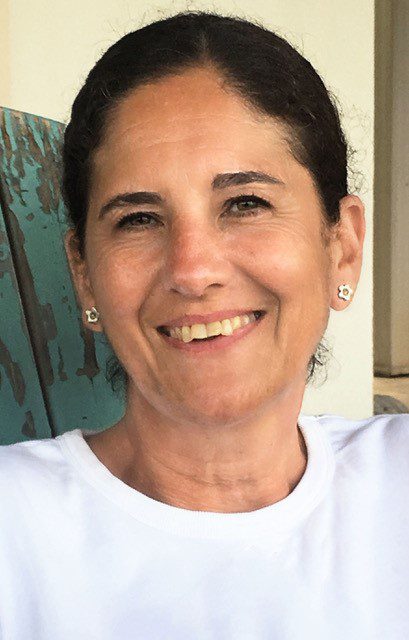
Gül Pulhan received her PhD in Ancient Near Eastern Archaeology from Yale University. She was a Martin Harrison post-doctoral fellow at Oxford University. She taught at Bilkent and Bilgi Universities, and was among the founding faculty members of the Department of Archaeology and the History of Art at Koç University. As part of the Ilısu Dam Salvage projects, between 2009-19, she conducted salvage excavations at Gre Amer Höyük in Batman. She worked as a co-curator in the conceptualization of the Erimtan Archaeology and Art Museum in Ankara. Since 2016 she has been affiliated with the BIAA in different capacities as a member of the Council of Management, director of the SARAT and coordinator of SARAA projects and as a Heritage Fellow.
Fields of Expertise: Anatolian and Mesopotamian Archaeology, History of Archaeology, Cultural Heritage Management, Museum Studies.
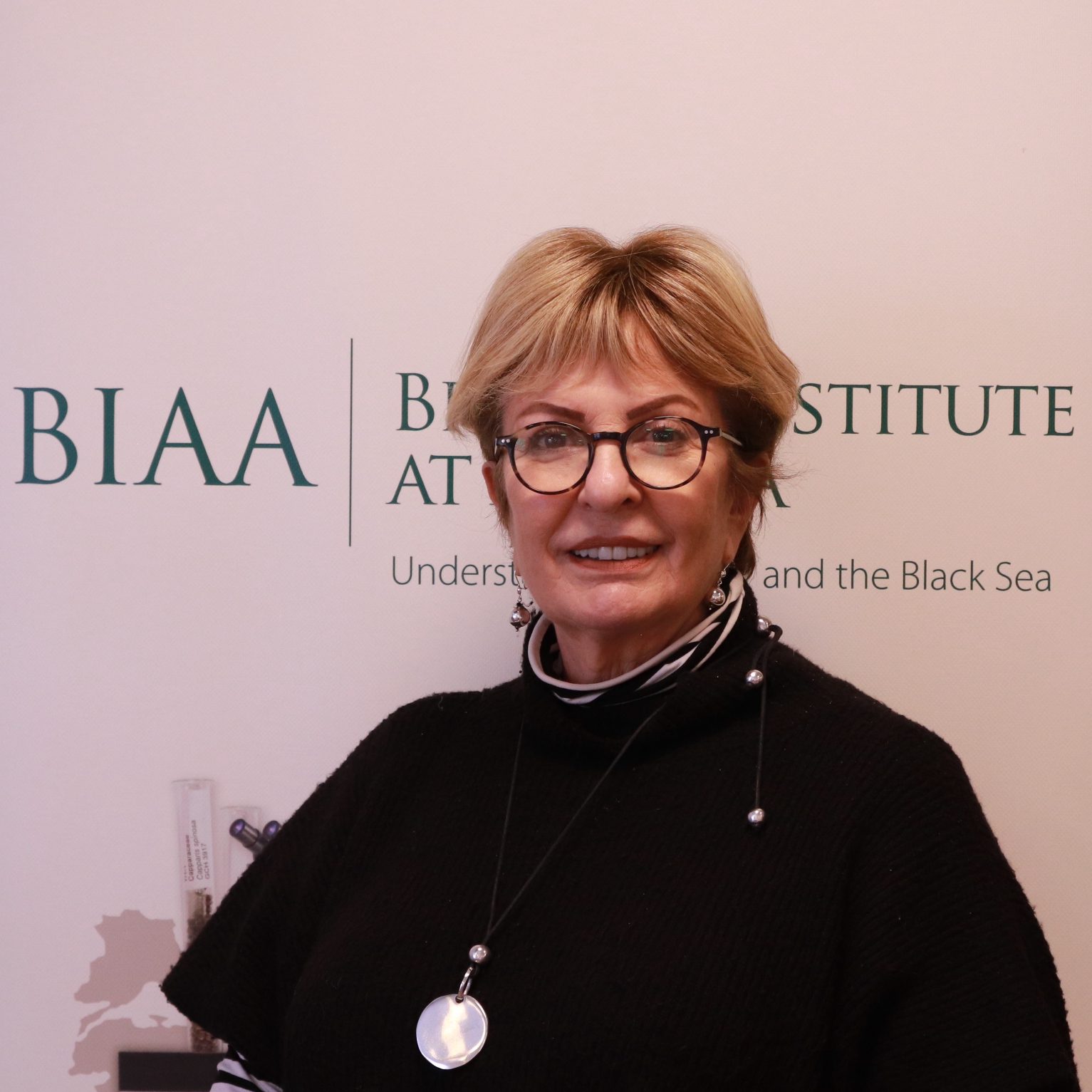
Gülgün Girdivan graduated from Middle East Technical University Department of Economics in 1981. She worked as an administrative manager for an international trade company, before joining the BIAA in March 1984. She has served under four Institute directors so far. She manages the day to day running of the Institute, including accommodation, member registration, residence permit applications, accounting and other office administration duties. She also assists with the Institute’s relations with local government ministries.
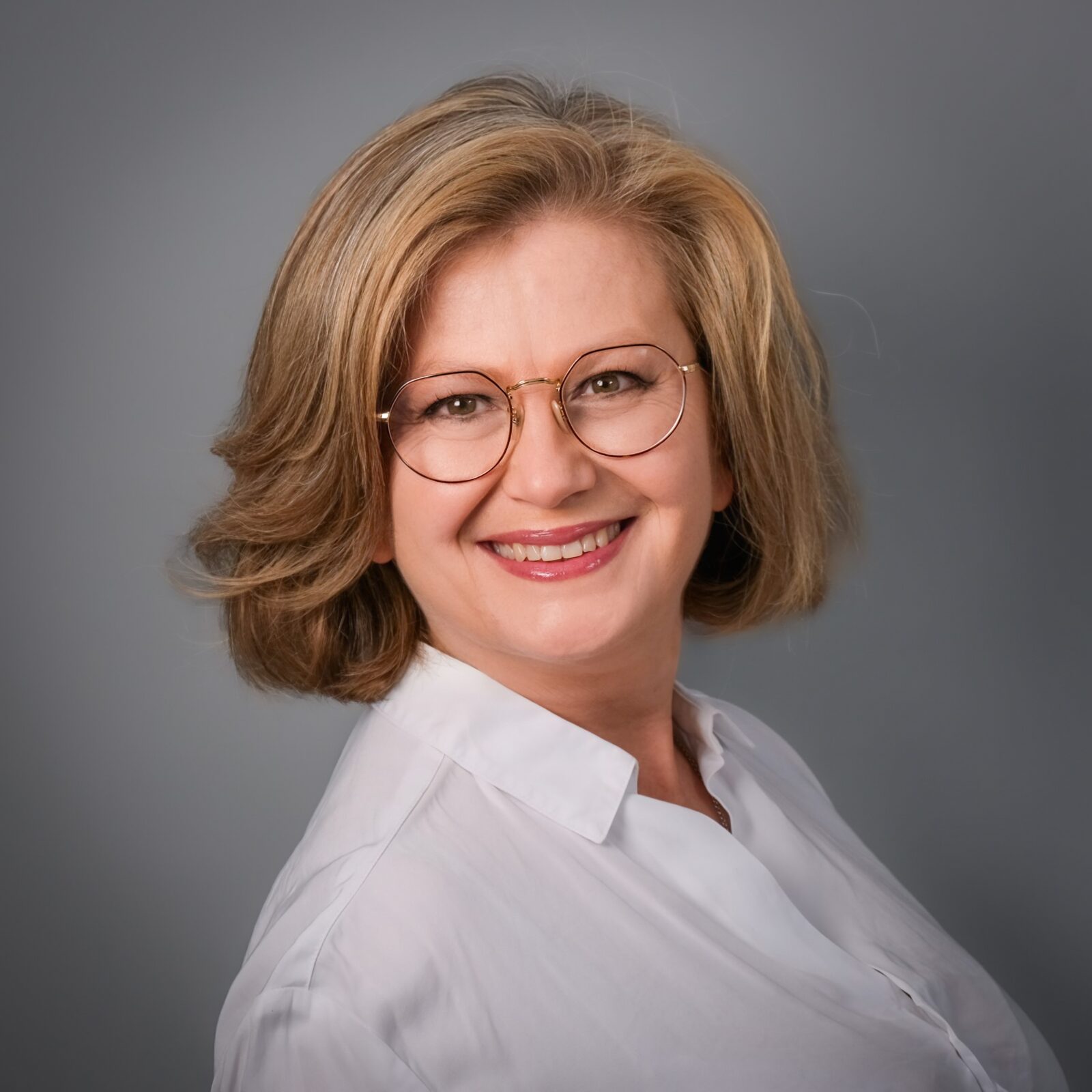
Ekin Beecher-Brigden is a qualified Management Accountant with a Bachelors degree in Econometrics from Dokuz Eylul University Izmir, Türkiye. She has over 25 years of experience working in private and public sector, charities and institutes. Ekin joined BIAA in March 2024. She manages the day to day activities of London office.
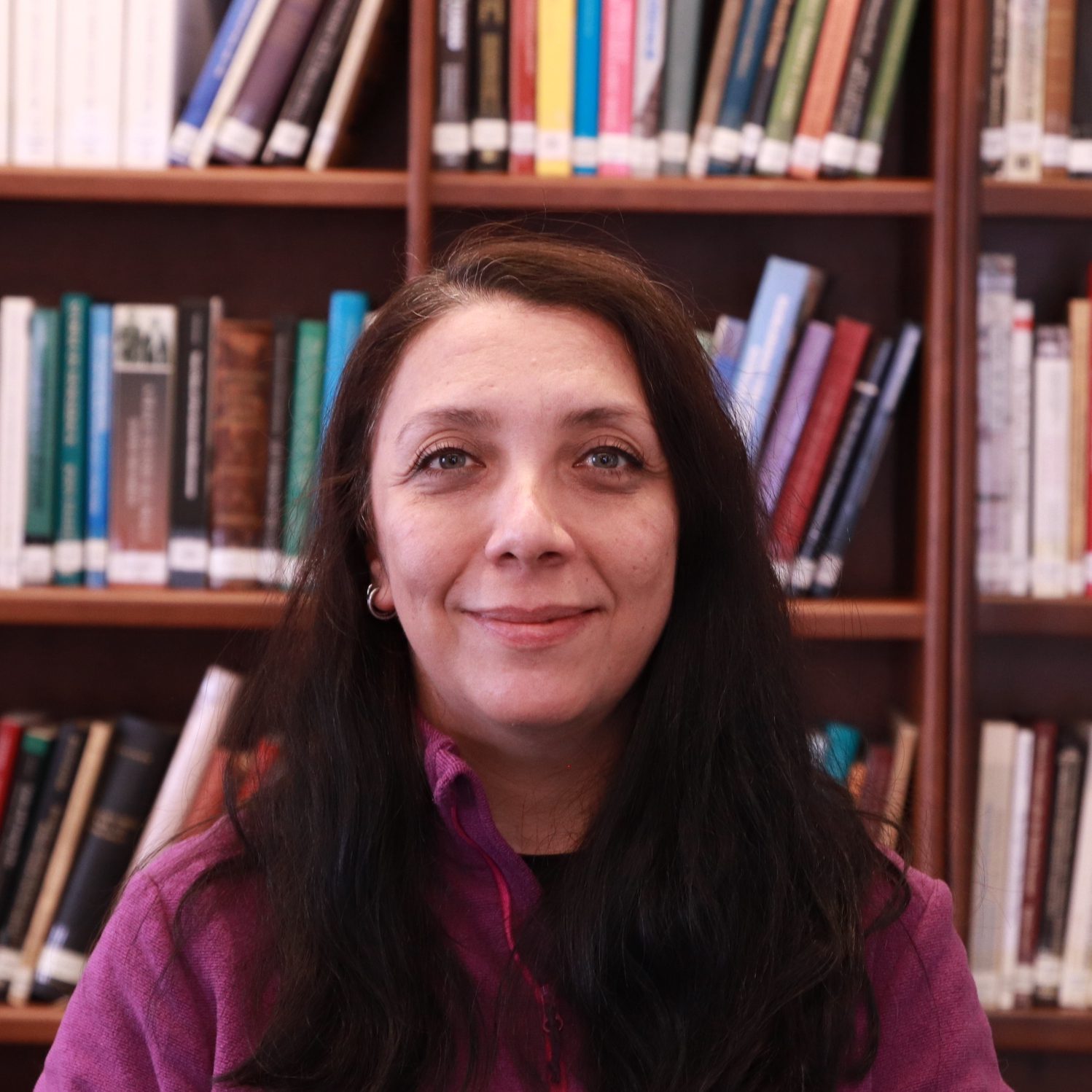
Burçak Delikan commenced her role as the Institute’s Senior Librarian in September 2009. She is currently working as Resource Manager, responsible for the library archives and other collections. She received her BA and MA from the Classical Archaeology Department at Ankara University, and is currently a PhD student in the same department, working on numismatics. During her studies, she worked on the Metropolis and Limantepe excavations as well as the Ulus rescue excavations. She is currently involved in the Metropolis (Ionia), and Nicaea (İznik) Roman Theatre excavations. She is also interested in numismatics and ancient gems.
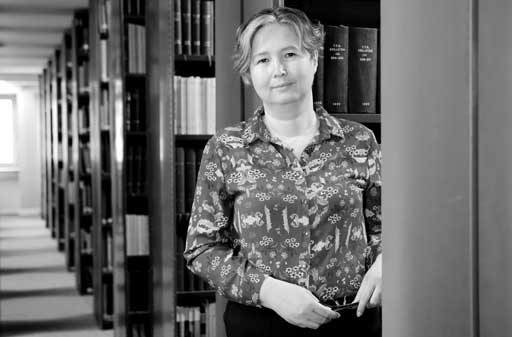
Nurdan Atalan Çayırezmez is a Near Eastern Archaeologist who holds a PhD in Information and Records Management from Ankara University. Her Master’s degree was in Settlement Archaeology from the Middle East Technical University. She has worked on different archaeological sites in Turkey, and her skills include using remote sensing and Geographic Information Systems (GIS). She applied these GIS skills to landscape archaeology whilst working as an archaeologist and Project Assistant at the Kerkenes Project in Yozgat and Ankara between 2000 and 2004

Gonca Özger is an archaeologist with interests in zooarchaeology and human-animal interactions in prehistoric Anatolia. Her research interests also include digitalisation of culture heritage collections and data management in archaeology. Her current research combines traditional zooarchaeological analysis with geometric morphometric methods and focuses on animal mobility and breeding practices in the Late Bronze Age period of Anatolia. She attended Bilkent University Department of Archaeology for her BA and received her MSc from the Department of Settlement Archaeology at METU in 2021. She has worked on the Çadır Höyük Archaeological Project since 2015 and has been the Digital Repository Assistant at the BIAA since 2020.
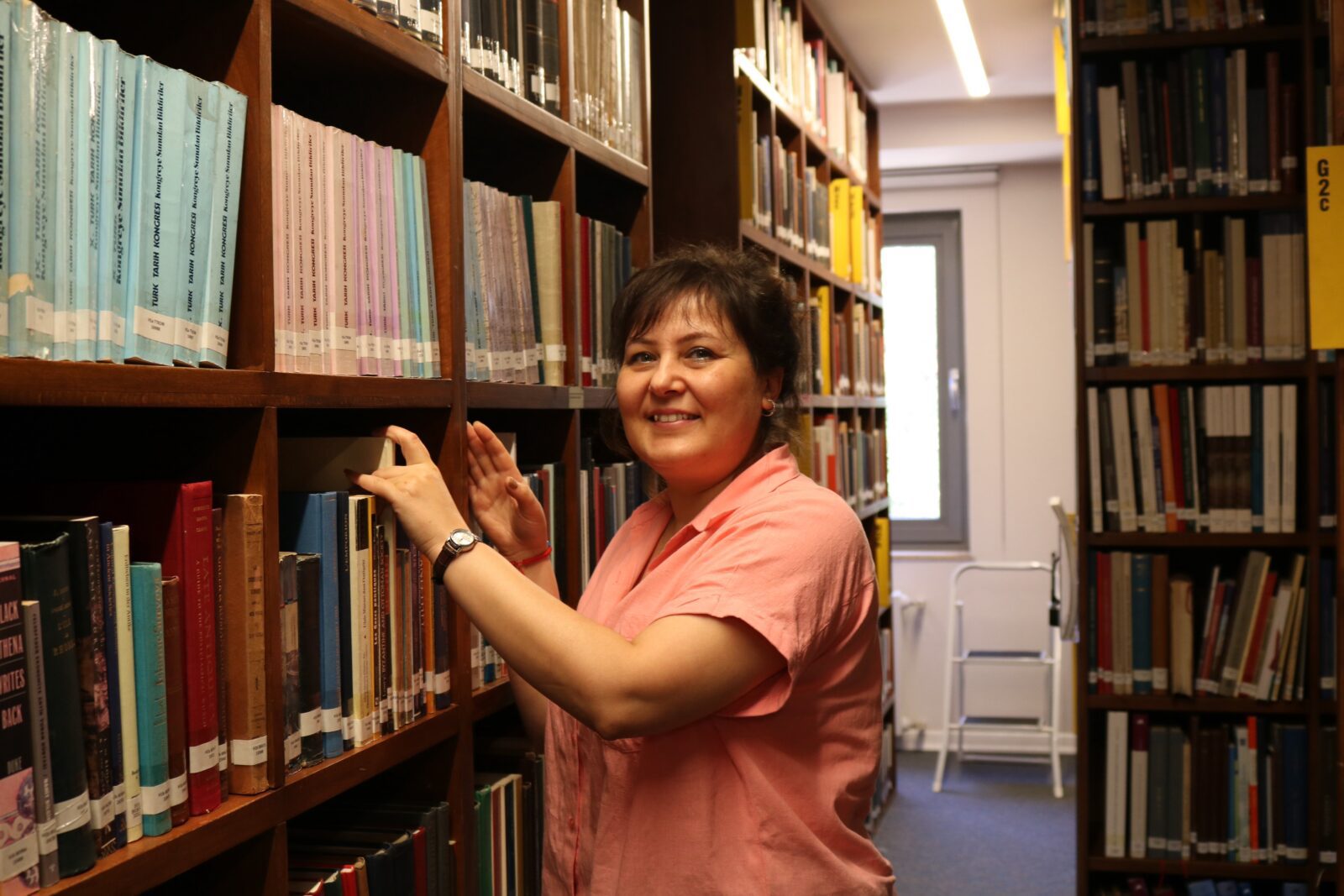
Nihal Uzun began working as assistant librarian at the BIAA in September 2015. She finished her BA in Archaeology at Hacettepe University in 2011, and studied English at Bilkent University’s preparatory school in 2013-2014. She received her MA from the Prehistoric and Protohistoric Archaeology Department at Adnan Menderes University, Aydın in 2019. In 2022, she also graduated with a second BA from the Department of Cultural Heritage and Tourism at Anadolu University. She attends online courses and certificate programmes on Cultural Heritage. Nihal is also interested in archaeological theory and methods and has been joining archaeological excavations in Anatolia since 2008.
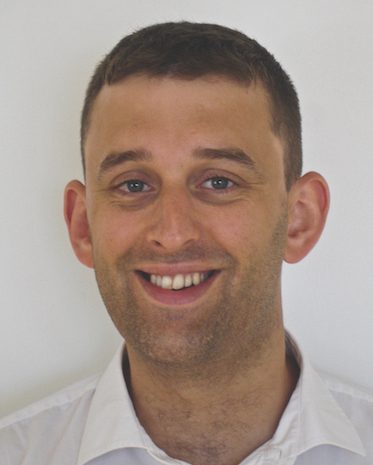
Martyn graduated from the University of Liverpool in 2004 with a BA in Ancient History and Archaeology, and was awarded an MA in Contemporary History and Politics by Birkbeck College, University of London, in 2011. He has held senior roles in several not-for-profit organisations, and before joining the BIAA in 2017 was Head of Supporter Engagement for a national charity in New Zealand. In addition to his work for the BIAA, Martyn is Executive Director of the UK-St Helena Heritage Trust, a martial arts instructor, a consultant, and Secretary of the British Association for Near Eastern Archaeology (BANEA).
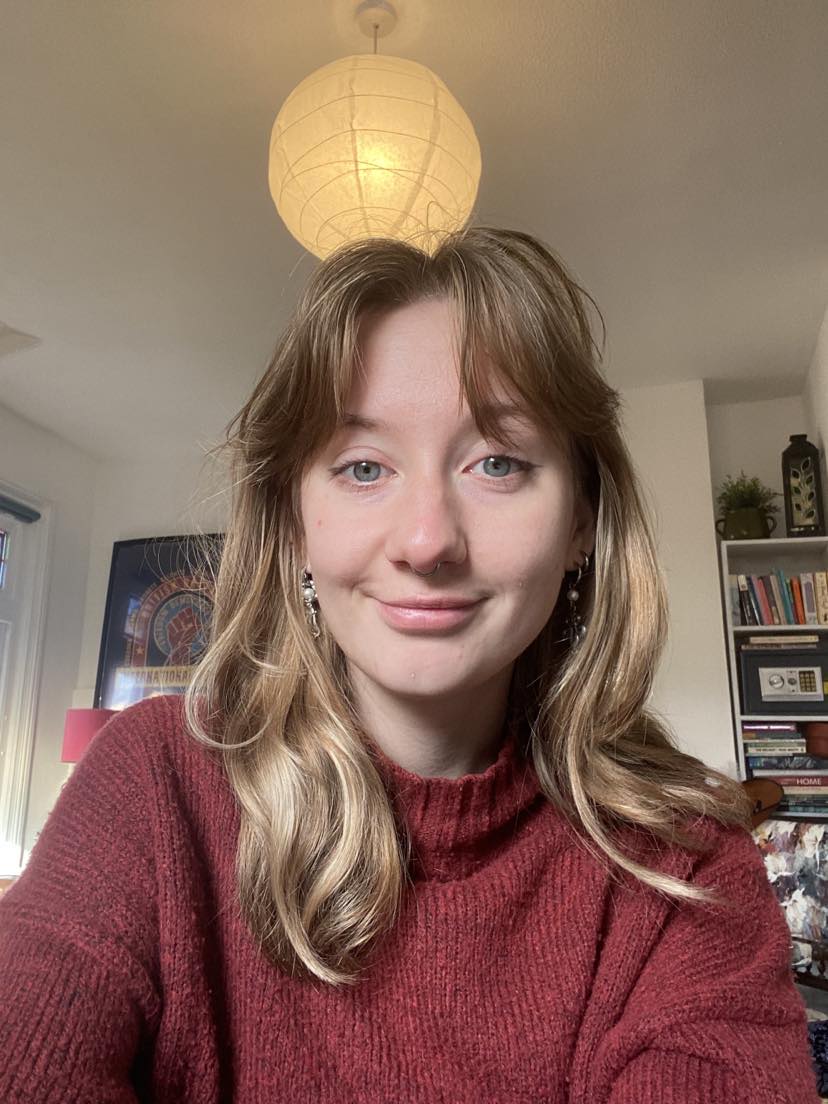
Nora Straw studied BA Archaeology and Ancient Civilisations shortly followed by an MA in Archaeology from UCL with both her dissertations focusing on Middle Kingdom Hieroglyphs. Her main duties include running social media platforms, creating news articles and other content for the BIAA website, and assisting with the organisation and promotion of London-based BIAA events. She also currently works as a Visitor Experience Officer at 575 Wandsworth Road, a National Trust property in South London.
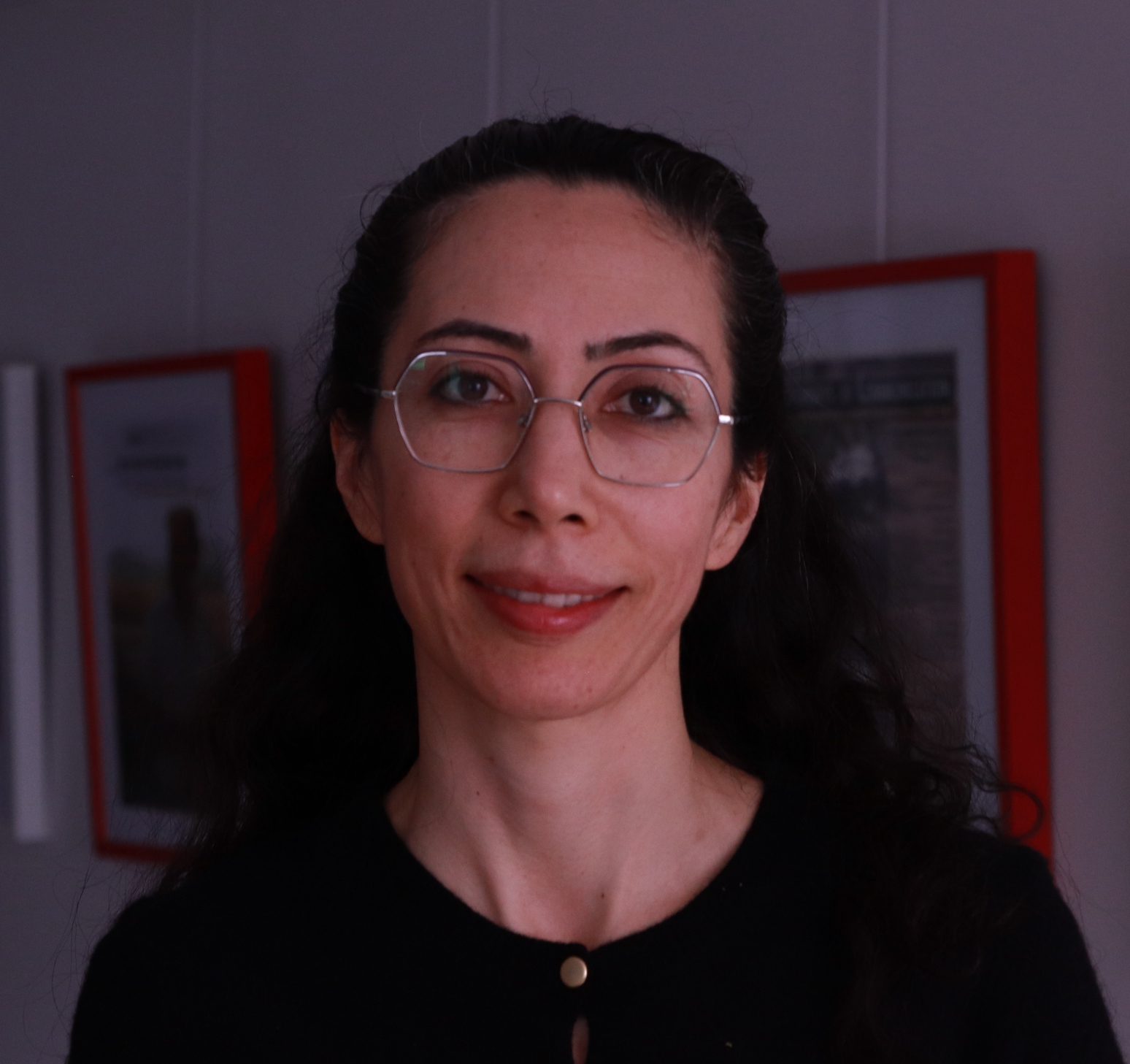
Başak Bodur joined the BIAA at the beginning of April 2018 as a part-time administrative assistant. Her responsibilities include managing bookings for the BIAA’s guesthouse, accommodation, membership, event planning and related duties, such as travel arrangements for visiting scholars and students. She holds a BSc from the Department of Geological Engineering at Middle East Technical University and an MBA from Atılım University. She is also a part-time lecturer in the Department of Child Development at Hacettepe University, and works as a free-lance yoga instructor.
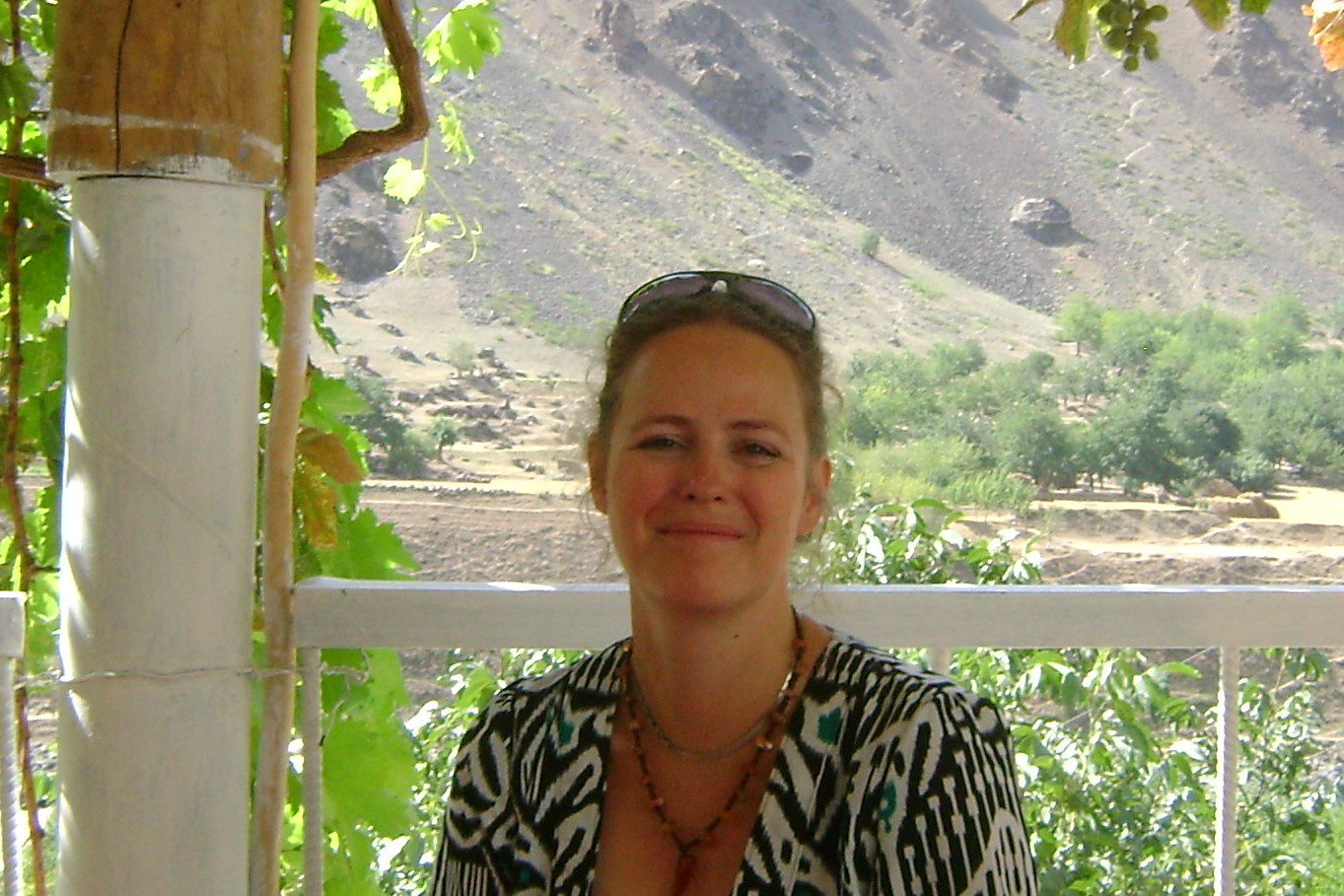
Katherine Hughes studied BA in Archaeology of the Ancient Near East, followed by an MA in Museum Studies, where her dissertation discussed the looting of the Iraq Museum during the 2003 invasion of Iraq by the West. Her doctoral research (SOAS 2014), focused on the feedback loop between early Islamic Samanid material culture in Central Asia and how the Samanids are visually referenced by Tajikistan’s identity programme today. She is continuing her research on the new materialism of early Islamic art, ontology of objects, critical heritage of museums and how monuments shape space around them.
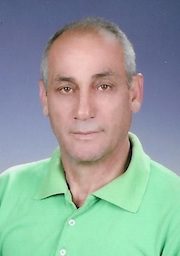
Mustafa Balcı has been working as a caretaker at the BIAA since March 2007. He graduated from the metalworks department of the Industrial Vocational High School at İskitler. Until his retirement in 2007, he worked in the Directorate of Construction and Technical Works at Middle East Technical University. His responsibilities involve maintaining the office and guesthouse’s fittings, including electrical & plumbing works, repairs, painting and providing support for the daily running of the office. He is also a talented barbeque chef as has been evident at many BIAA garden parties.
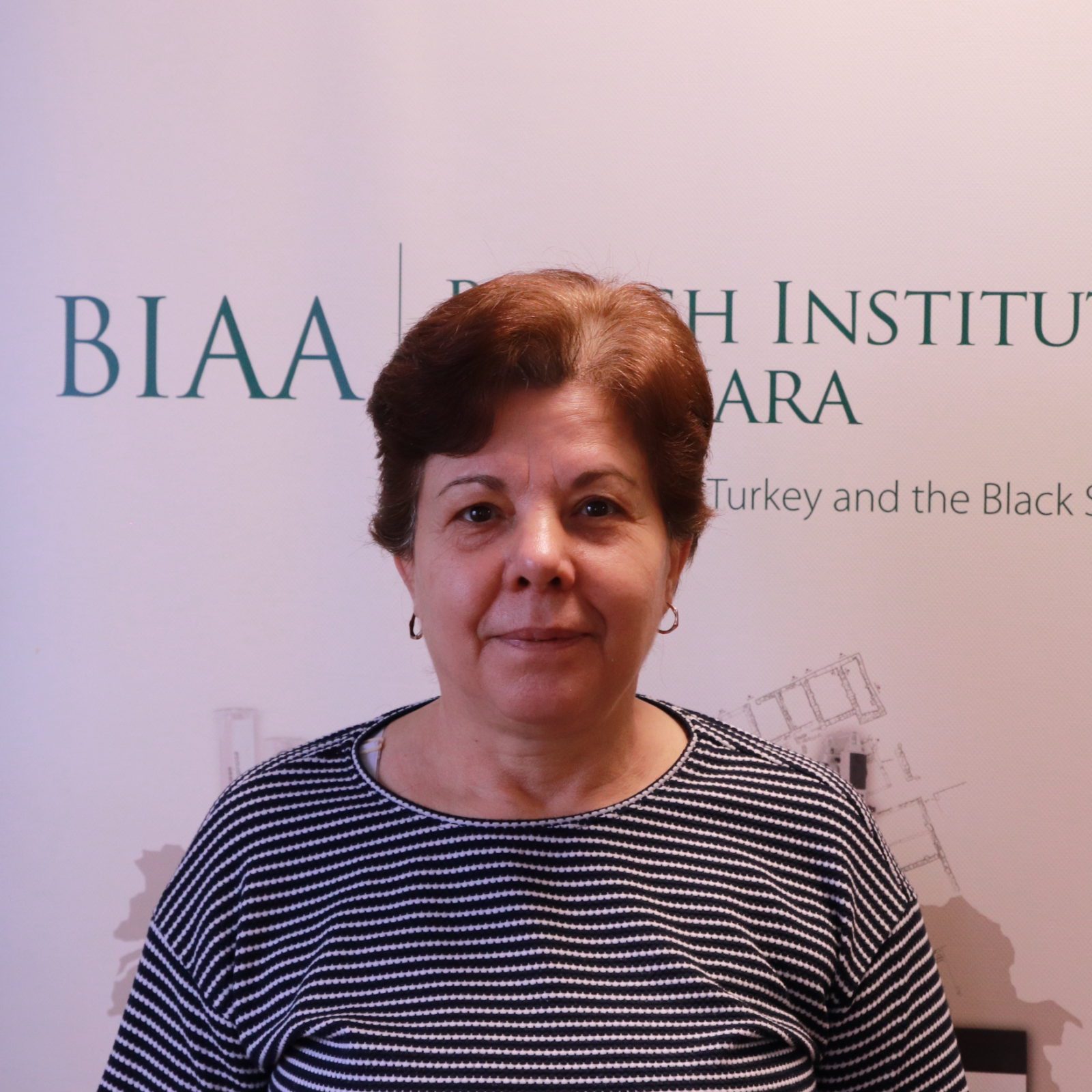
Keziban Çoşgun has been working as a domestic staff member since June 2009. She is responsible for the cleaning of the office, library and guesthouse. It is thanks to her that the Institute and the guesthouse are always clean. She is also highly valued and respected for the delicious cakes that she makes for special occasions at the Institute. Over the last few years, the Covid-19 pandemic has meant that Keziban’s role in keeping the office and guesthouse clean and sanitary has been more important than ever, and all staff are incredibly grateful to her for helping to provide a safe working environment.
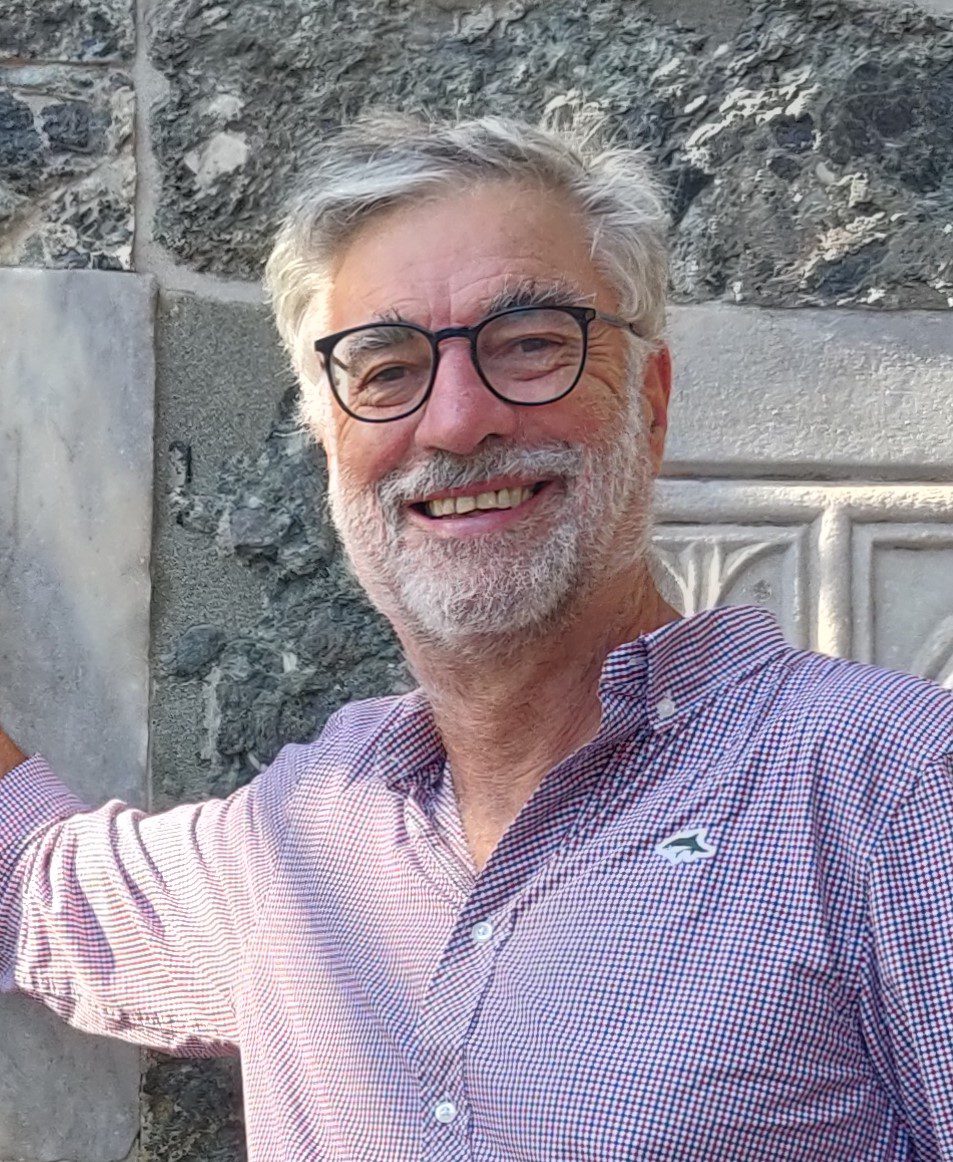
Jim Crow teaches Roman and Byzantine archaeology at the University of Edinburgh. He first travelled to Turkey when he was a student at Birmingham, continuing his research at Newcastle and Sofia Universities. In the late 1970s he was based in Ankara, with a Leverhulme Studentship followed by BIAA Research Fellowship where he travelled with David French along the Euphrates and was part of the first season at Tille. He lectured at Warwick and Newcastle Universities before his current post at Edinburgh. In Turkey he has directed survey projects on the Black Sea and from 1994 in the west hinterland of Istanbul, surveying and documenting the Anastasian Wall and the Water Supply of Byzantine Constantinople.
Further information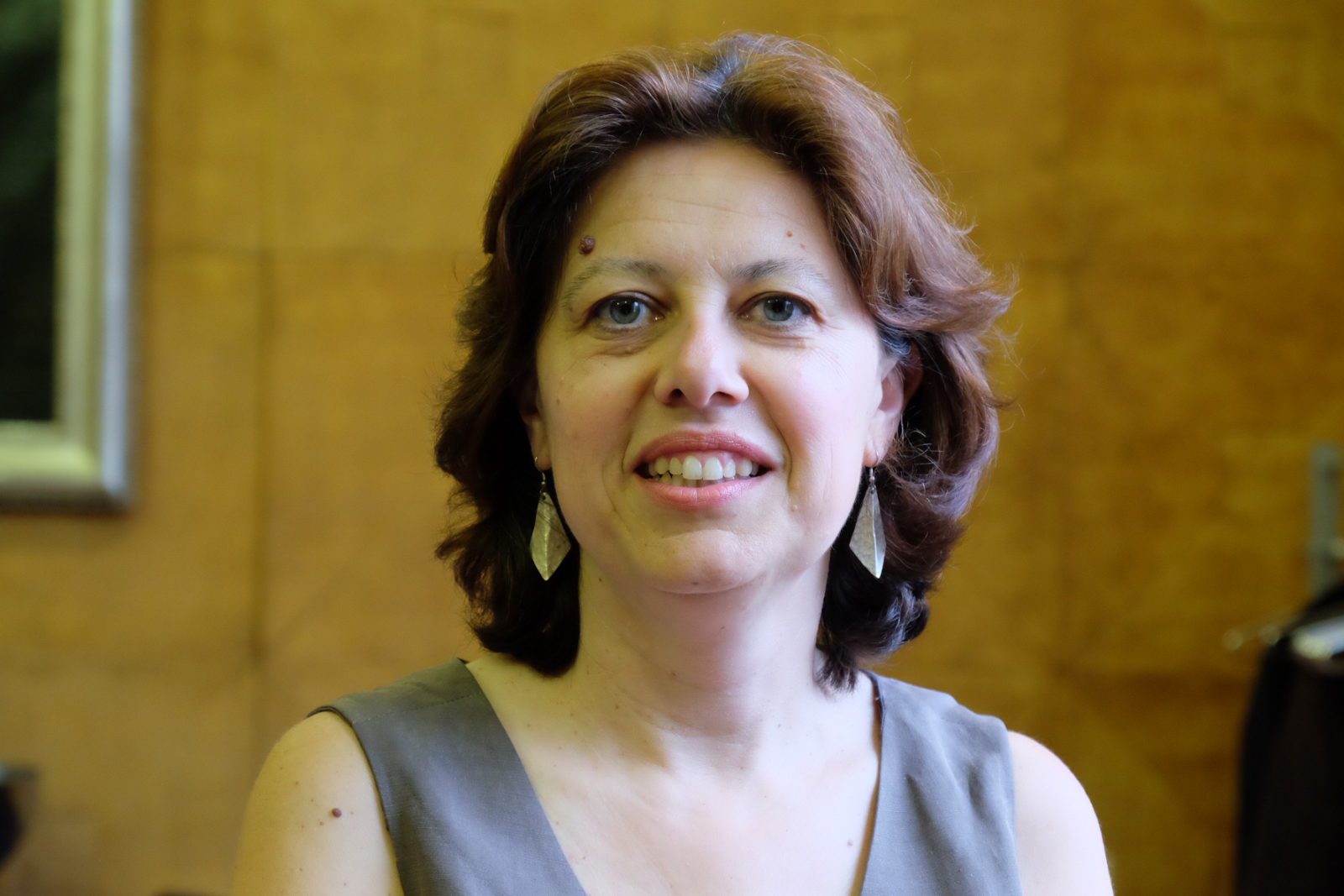
Aylin Orbaşlı trained as an architect at the Middle East Technical University, before specialising in building conservation and heritage management. She is a Reader in the School of Architecture at Oxford Brookes University and also works as a consultant advising on the conservation and management of historic sites and settlements. She works extensively in the Balkans and the Middle East, and has undertaken assignments at a number of World Heritage Sites in the region, including Petra in Jordan. In Turkey she coordinated the management plans that supported the successful World Heritage Site nominations for Çatalhöyük and Ani, and is regularly engaged in delivering training programmes on heritage management.
Further information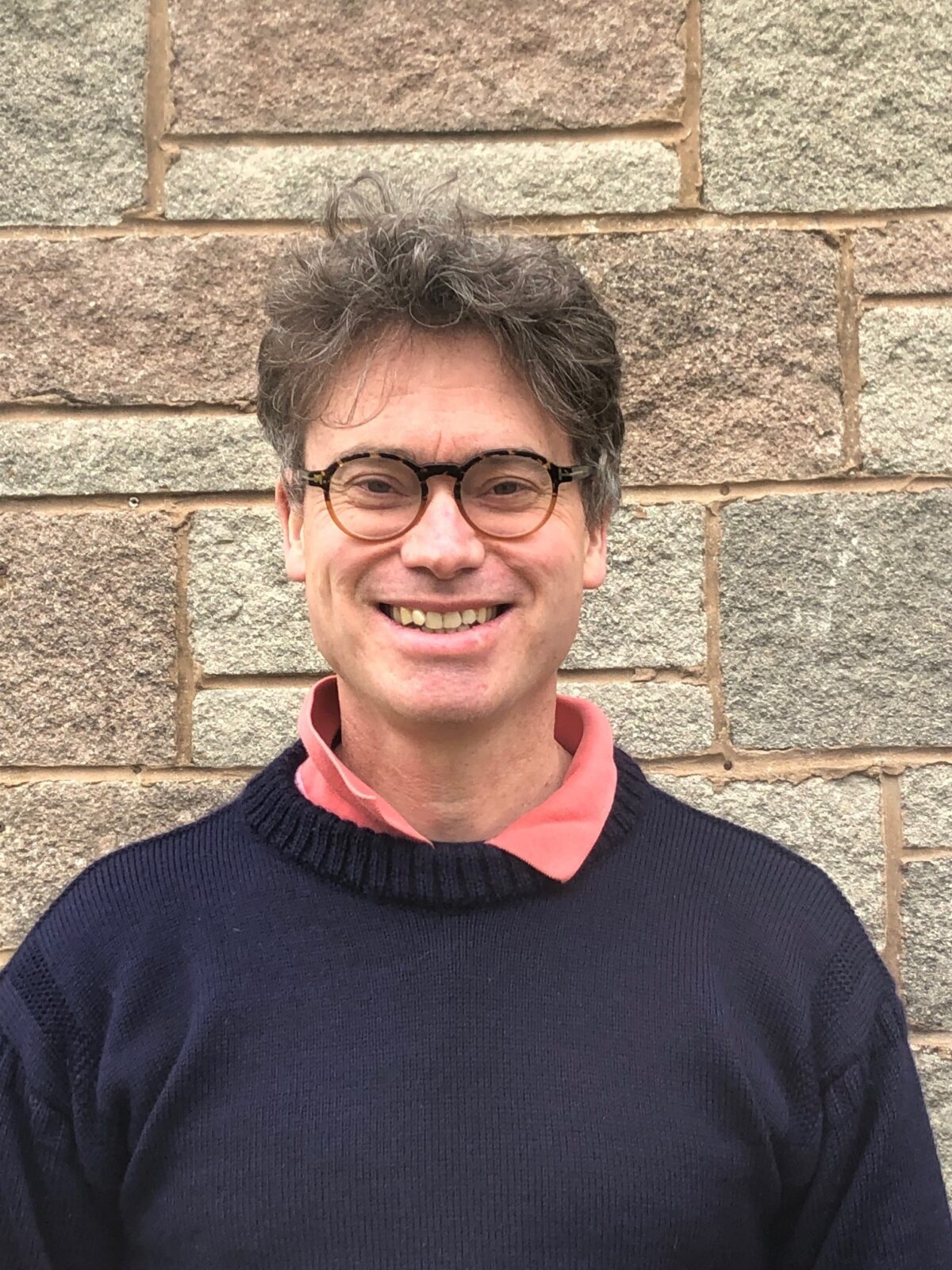
Dr Mark Jackson is Professor of Byzantine Archaeology at Newcastle University. He teaches and researches Late Roman and Byzantine Archaeology. At Newcastle University, Mark also has academic responsibility for the Gertrude Bell Photographic Archive, a UNESCO International Memory of the World which includes over 8000 images mostly taken by Gertrude Bell in the Ottoman Empire before World War I. He has been working recently with endangered archives and endangered material knowledge. He was Co-Director for the Byzantine for the Kilise Tepe Archaeological Project and has been involved in many other field projects sponsored by the BIAA over the past 30 years.
Fields of Expertise: Late Roman and Byzantine Archaeology; ceramics; archives
Further information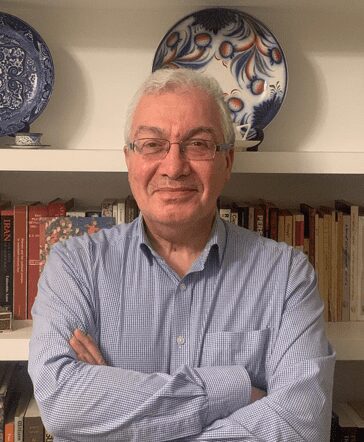
Kamran Hashemi has worked in investment banking in London for over 30 years. He has been a long-standing supporter of educational and charitable organisations serving the community at large. Kamran is a member of the Board of Arseh Sevom, an NGO promoting civil society and human rights in Iran and a Trustee and Treasurer of Persia Education Foundation, an NGO and UK registered charity, which provides educational support to Iranians worldwide. He was previously founding member and member of the Board of Iranian Community Centre established in 1983 to offer legal advisory services to asylum seekers in London.
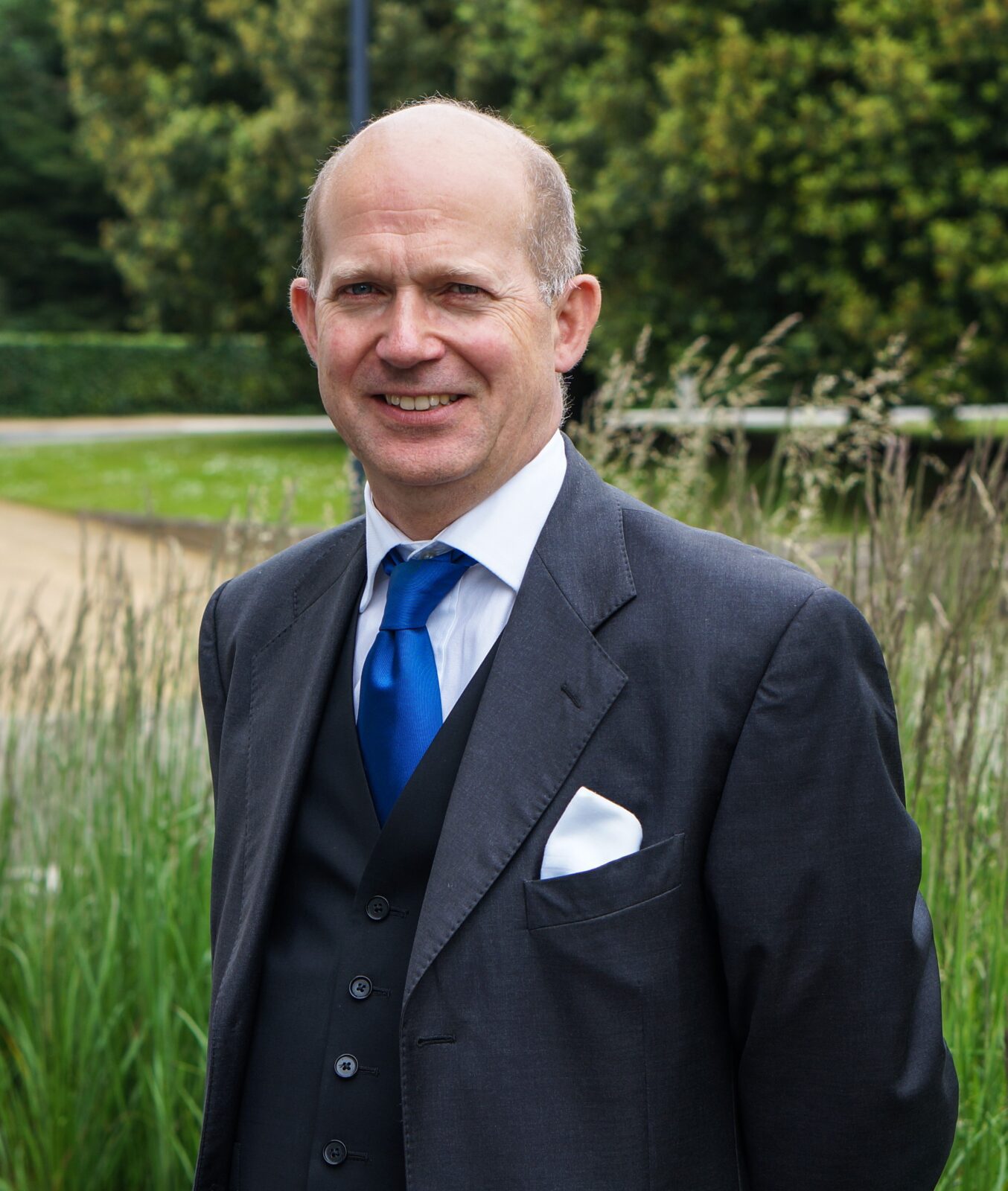
Sir Dominick Chilcott is a retired diplomat who joined the Foreign and Commonwealth Office in 1982. He has served as High Commissioner to Sri Lanka and Maldives, 2006 to 2007; Deputy Ambassador to the United States, 2008 to 2011; Ambassador to Iran (for six weeks only in late 2011 – the posting was ended by the attack on the embassy); Ambassador to Ireland, 2012 to 2016; and Ambassador to the Republic of Türkiye, 2018 to 2022. In addition to those postings, Sir Dominick has served in Ankara (1985 to 1988), Lisbon (1993 to 1995) and at the UK’s mission to the European Union in Brussels (1998 to 2002). Between overseas assignments, Sir Dominick has worked in the FCDO in London on European, African and Middle Eastern affairs. He has been a private secretary to two Foreign Secretaries, Sir Malcolm Rifkind and the late Mr Robin Cook. He was director of the Iraq Policy Unit in 2003 and director for bilateral relations with European countries from 2003 to 2006. He studied philosophy and theology at the University of Oxford. Sir Dominick’s hobbies include walking, sport of all kinds, reading, history, music and the theatre.
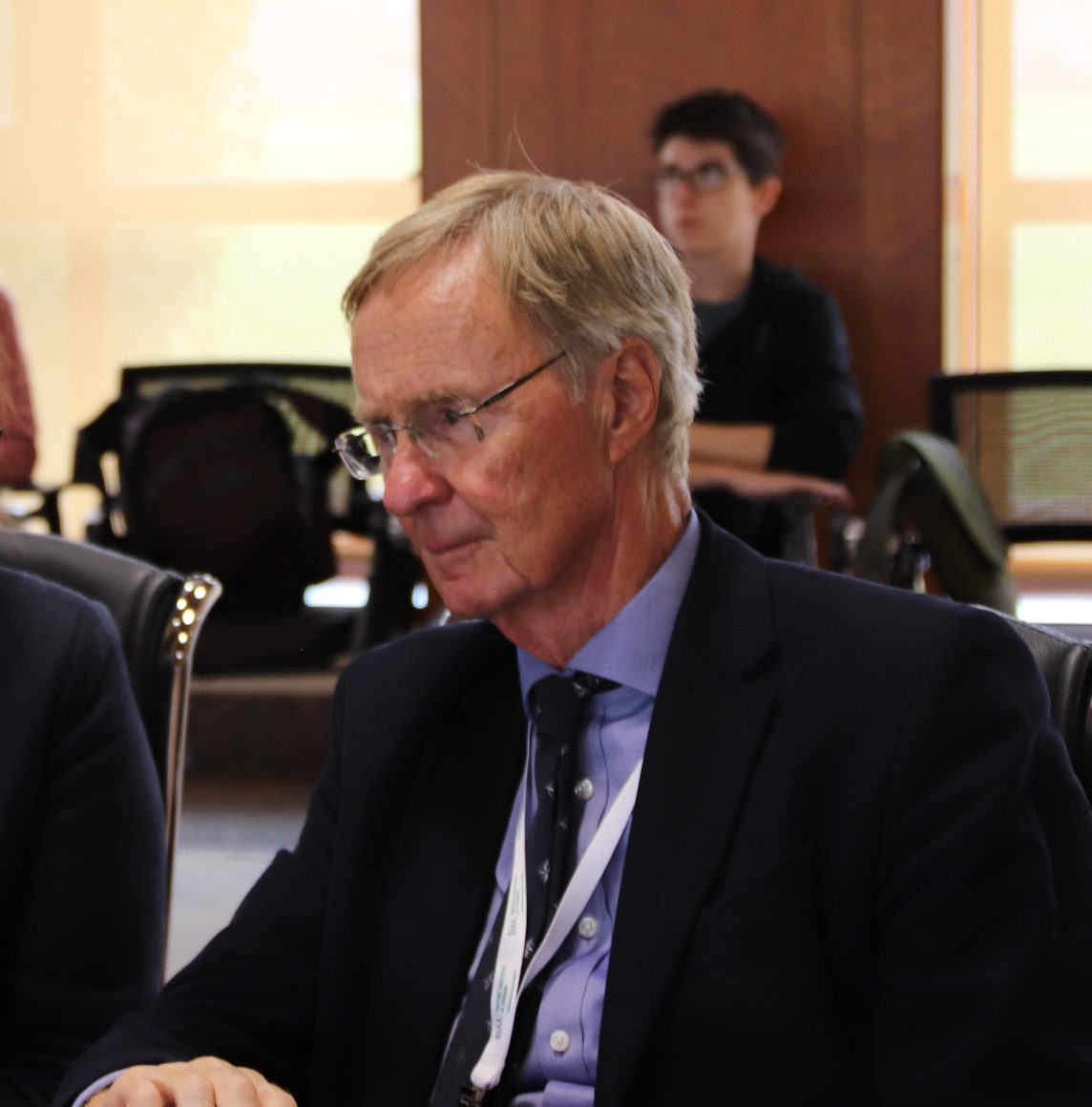
Sir David Logan is a retired senior diplomat who was a Turkish specialist in the Diplomatic Service, serving in the political section of the British Embassy in Ankara from 1966-1970 and as Ambassador to Turkey from 1997-2001. He was later Director of the Centre for Studies in Security and Diplomacy at Birmingham University, and an Honorary Professor there, and has subsequent experience in business and other fields as a non-executive Director and consultant to a range of British, Russian and Turkish companies. He served as the Chairperson of the BIAA for 11 years between 2006-2017.
Jim Crow
Aylin Orbasli
Kamran Hashemi
Martin Stokes
Natalie Martin
Ayse Zarakol
Scott Redford
Mina Toksoz
John McManus
Anna Collar
Catherine Draycott
Mark Jackson
Sophie Moore
Scott Redford (Chair)
Lutgarde Vandeput
Işılay Gürsu
Aylin Orbaslı
Natalie Martin
Catherine Draycott
Christopher Markiewicz
Kamran Hashemi (Chair)
Lutgarde Vandeput
Nicholas Milner
Simon Corcoran
Mark Jackson
Anthony Sheppard
Kate Owen
Jim Crow (Chair)
David Logan
Lutgarde Vandeput
Scott Redford
Dominick Chilcott
Catherine Draycott (Chair)
Lutgarde Vandeput
Naoise MacSweeney
Chris Markiewicz
Ceren Lord
Peter Cherry